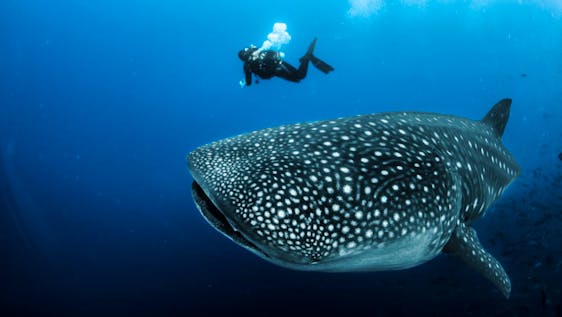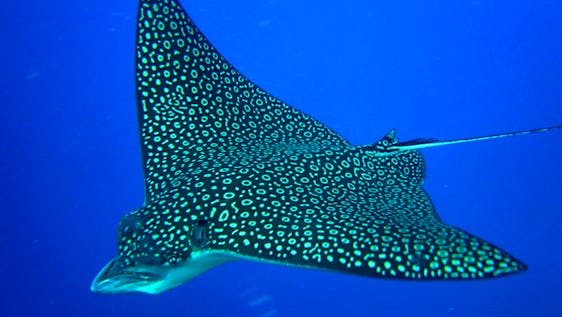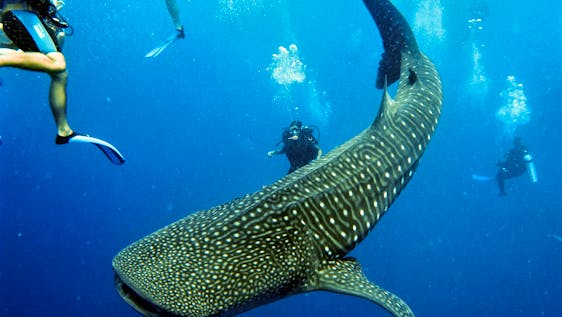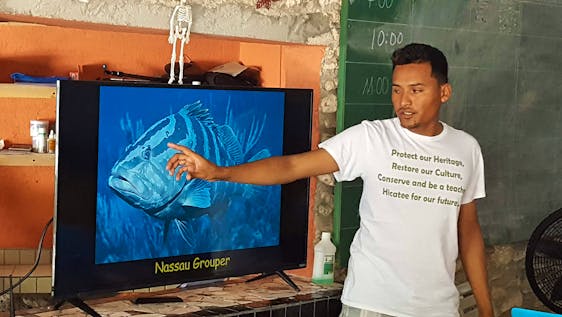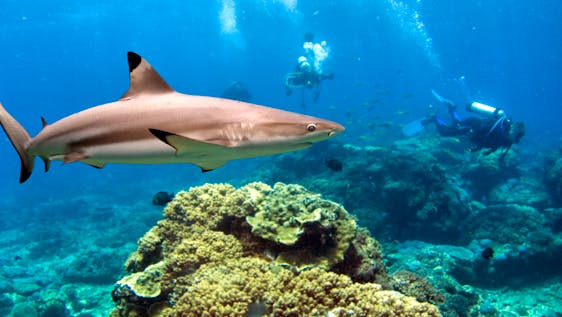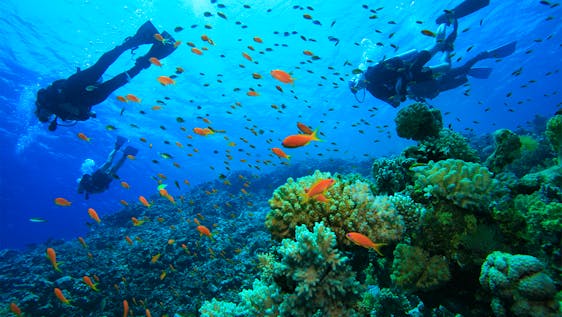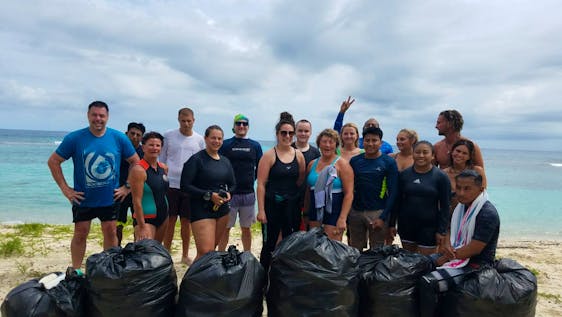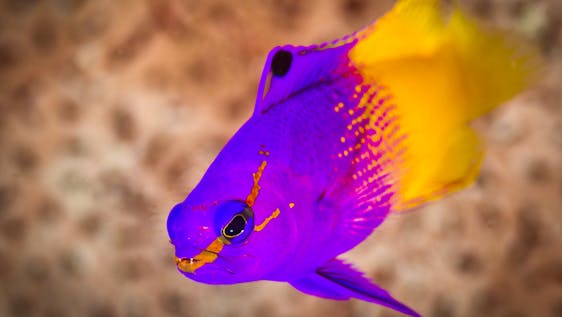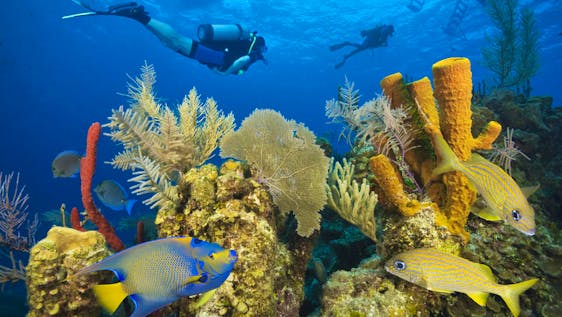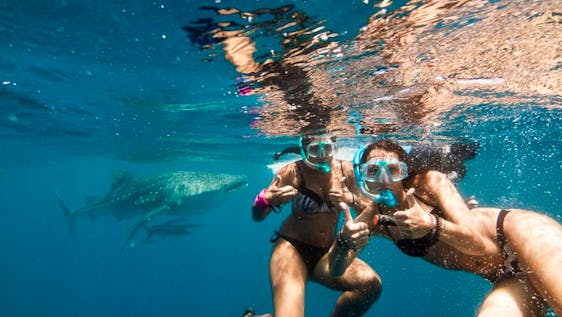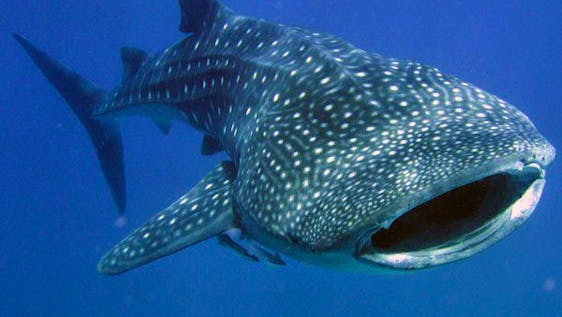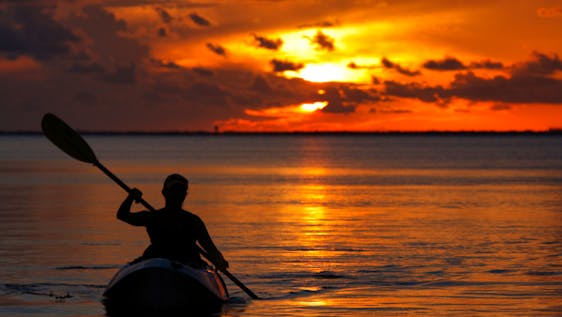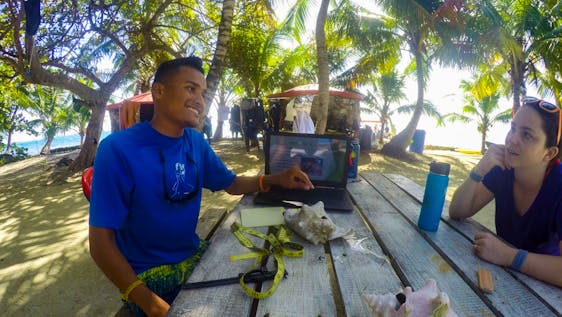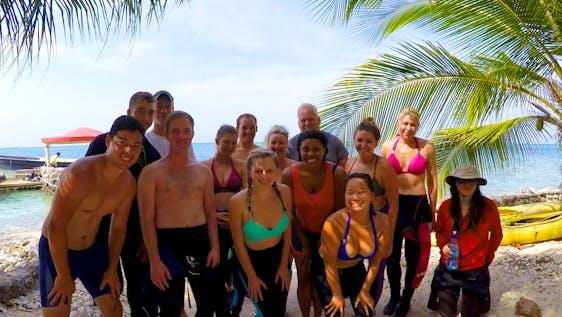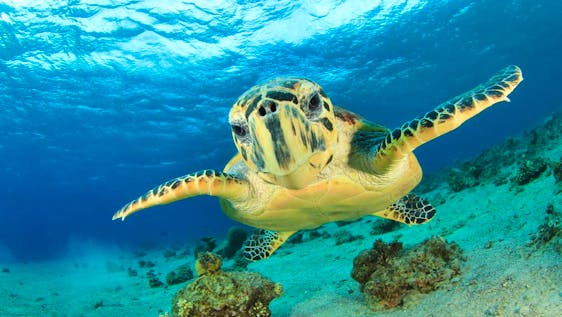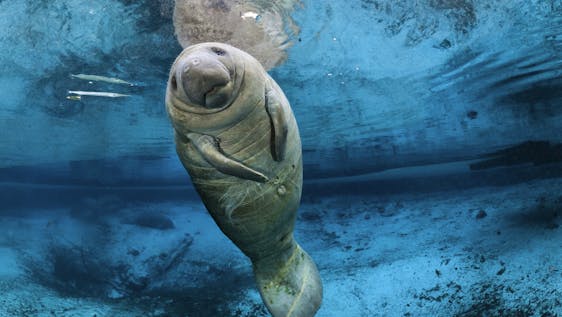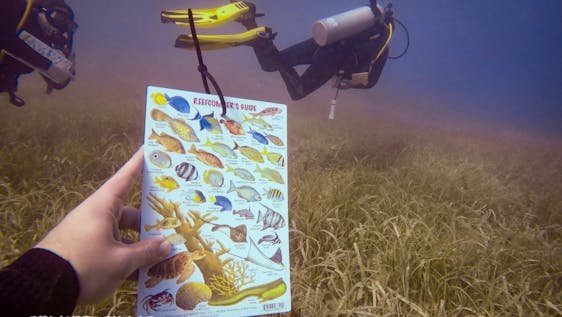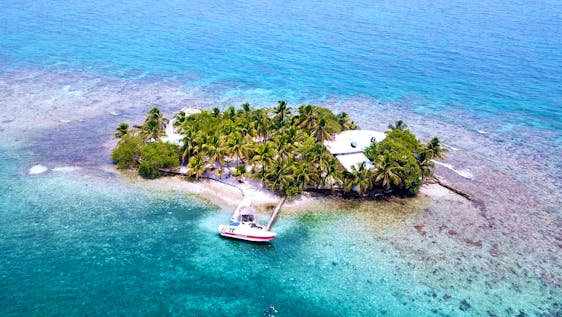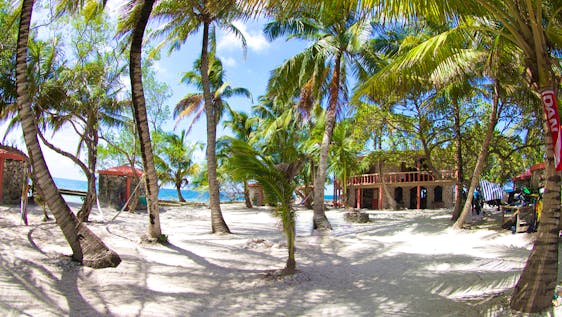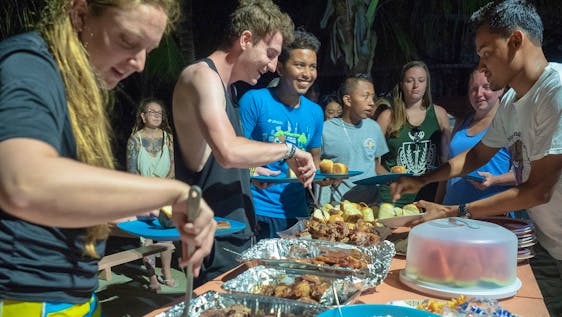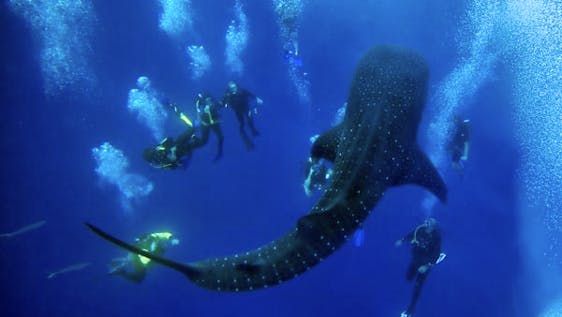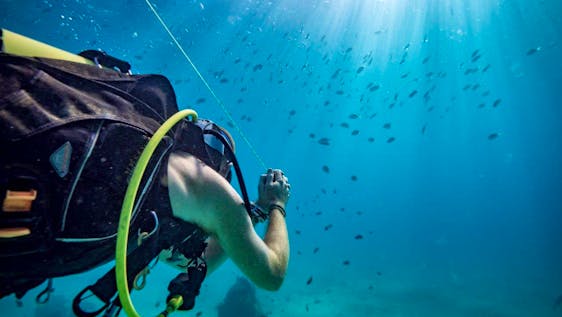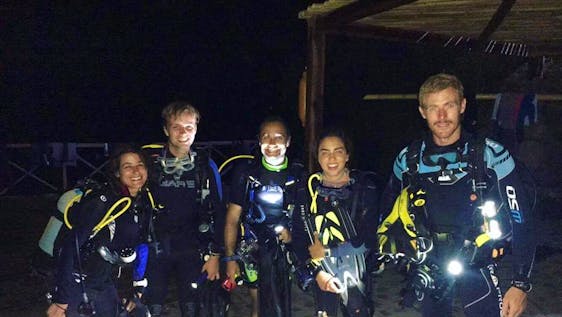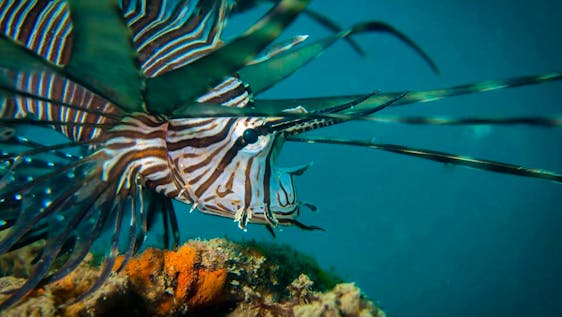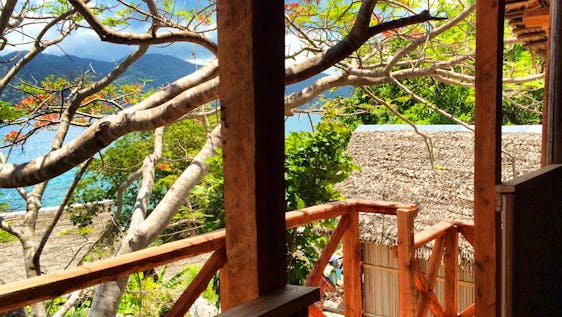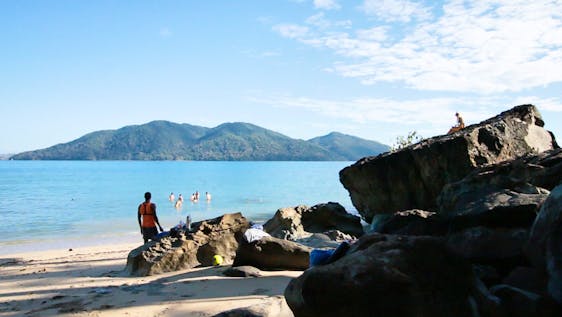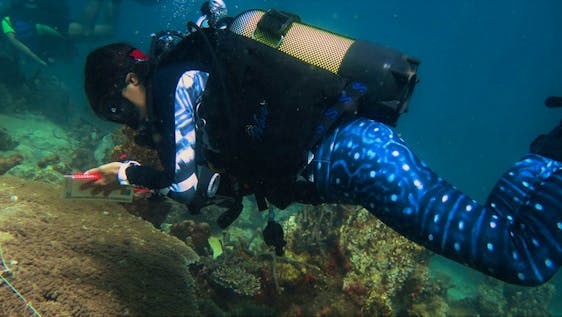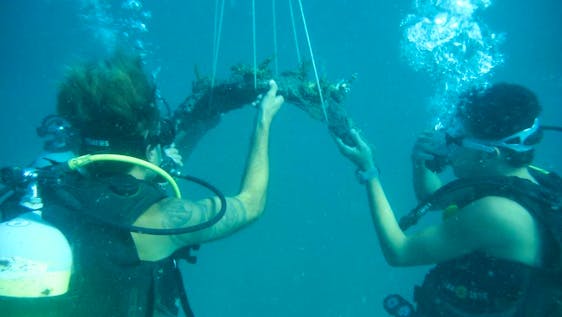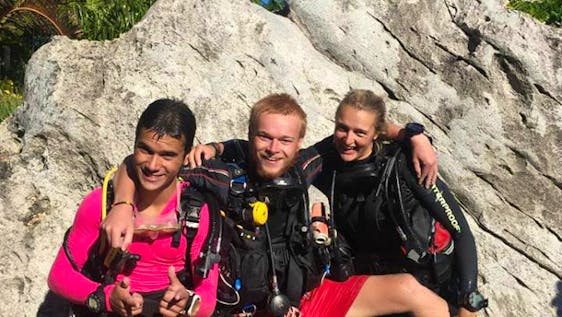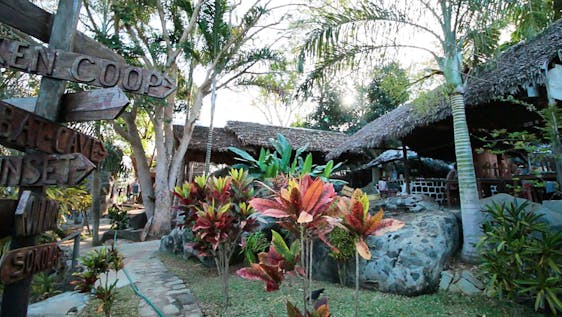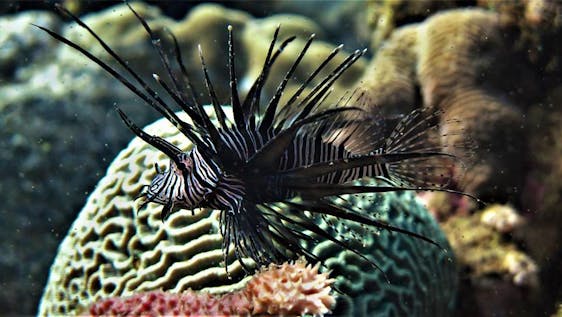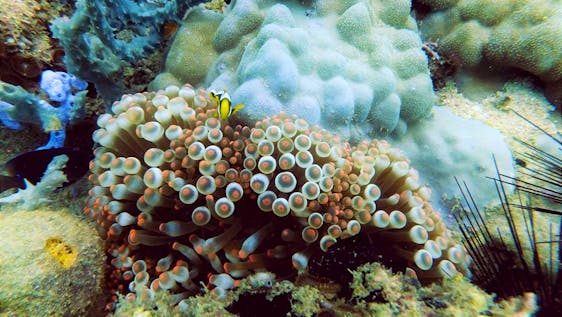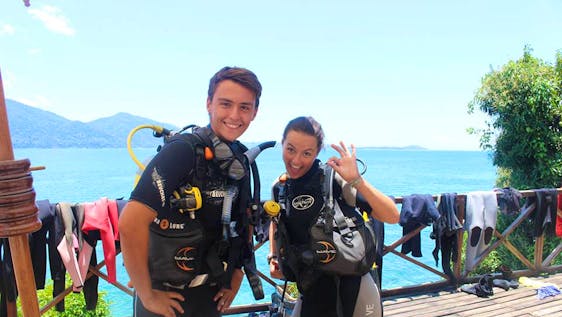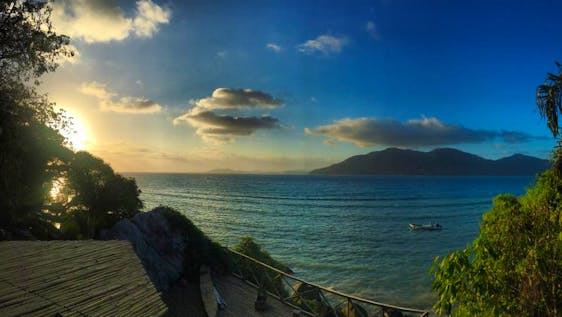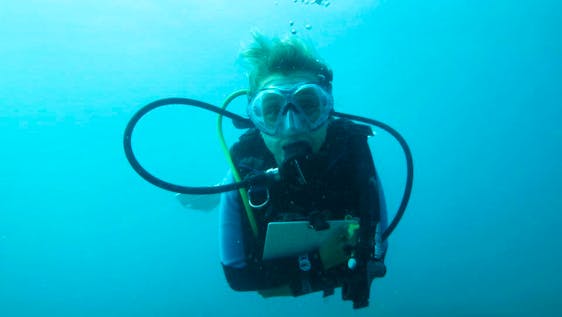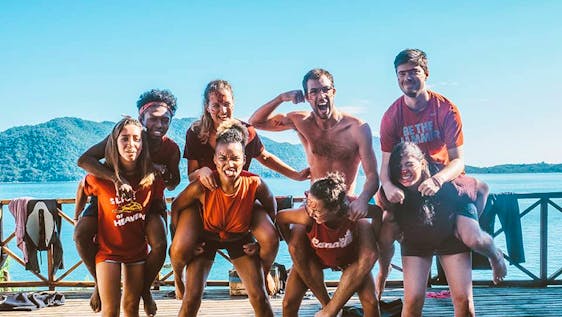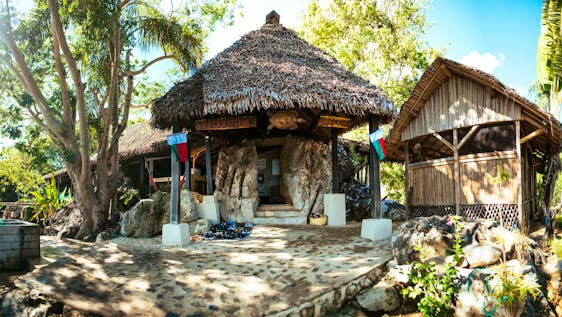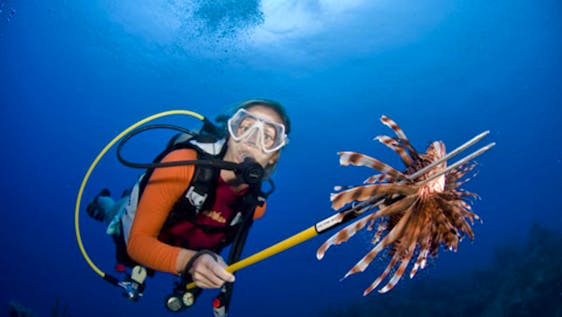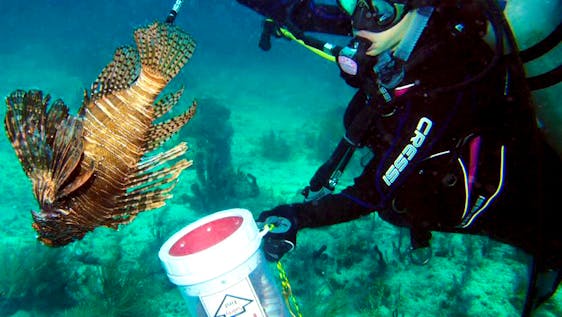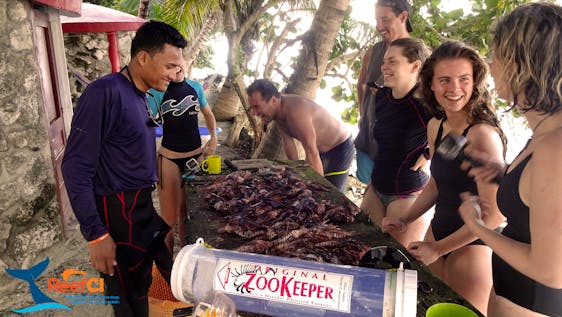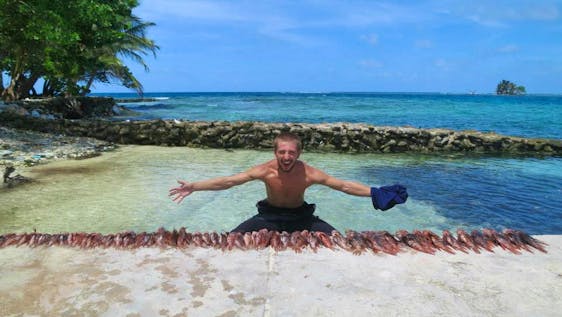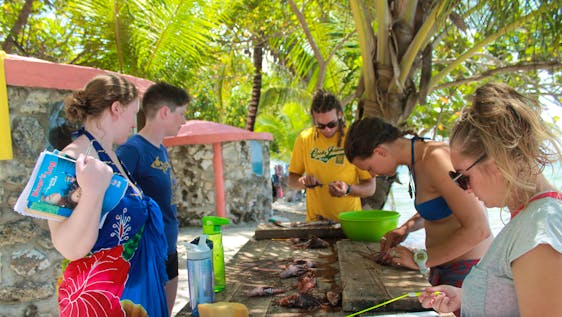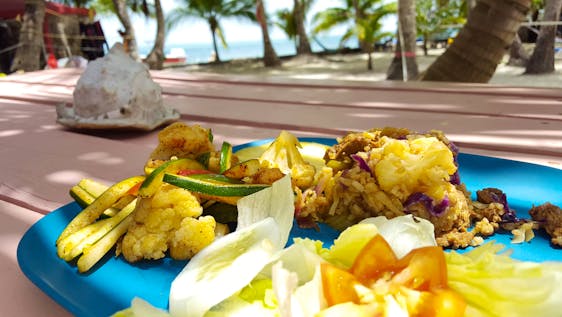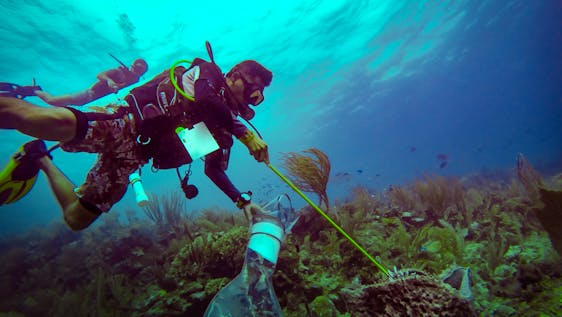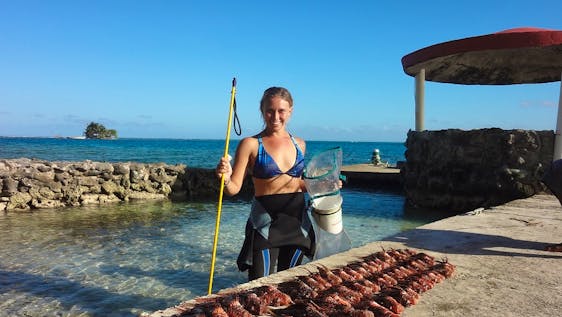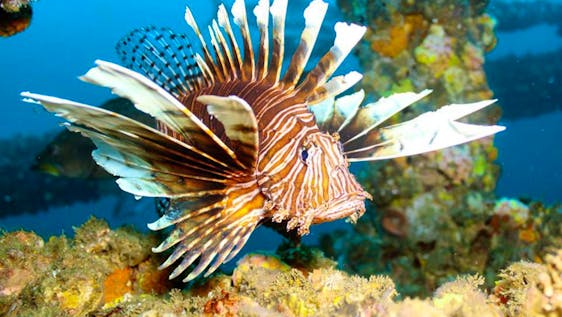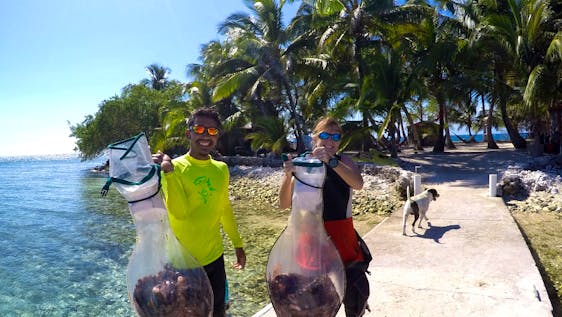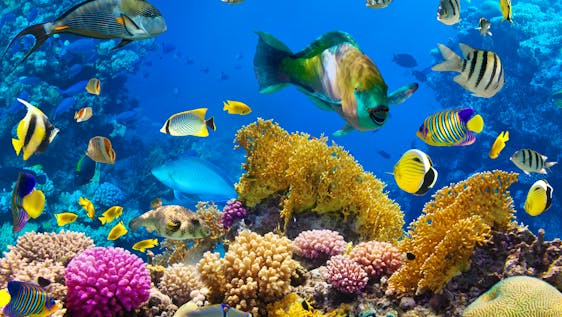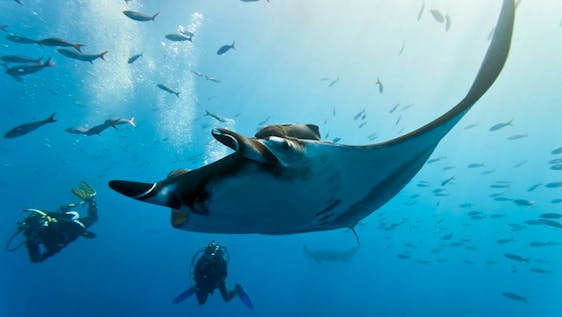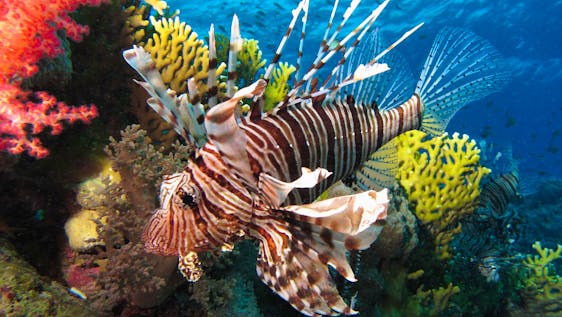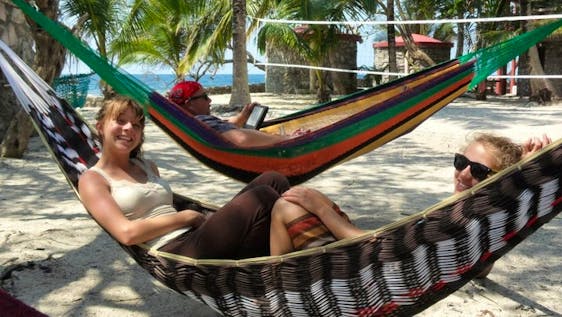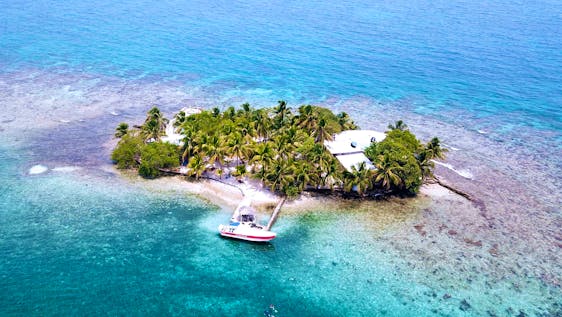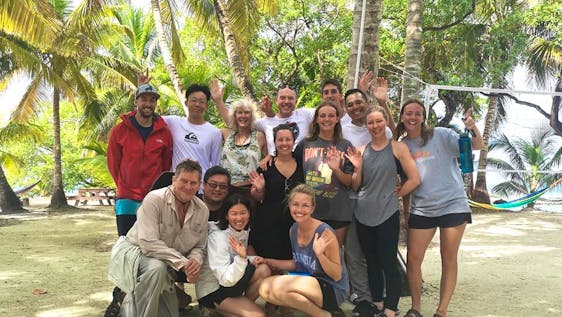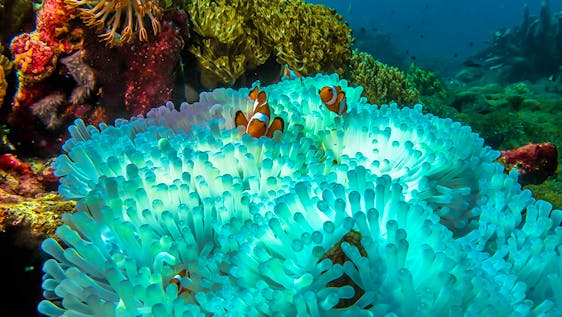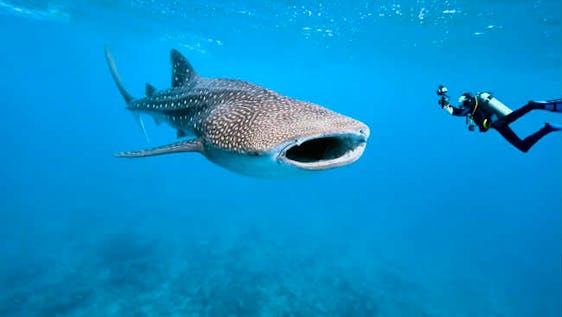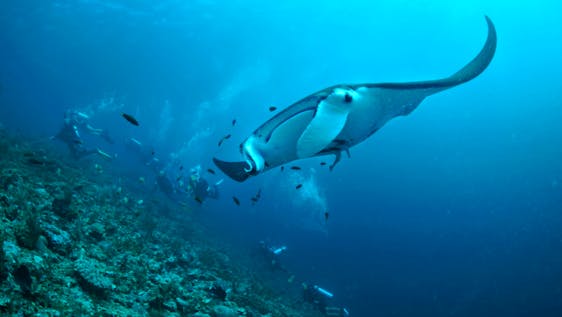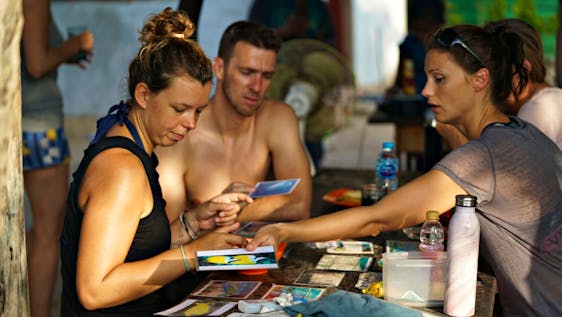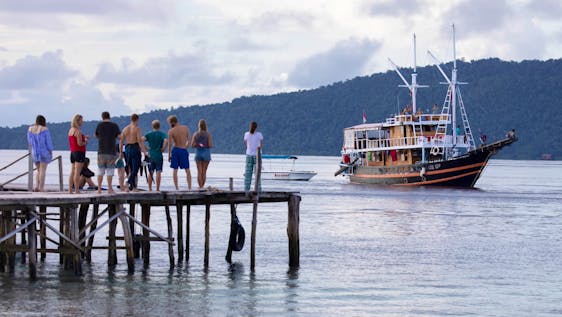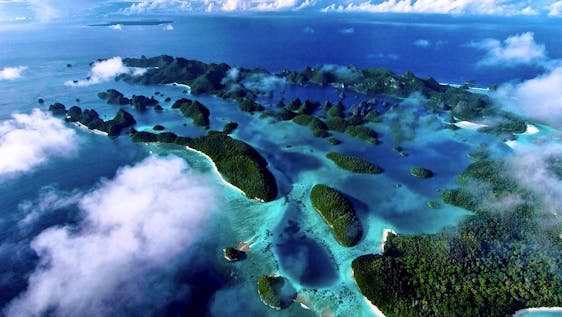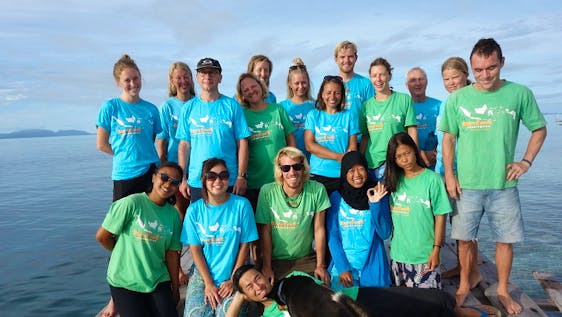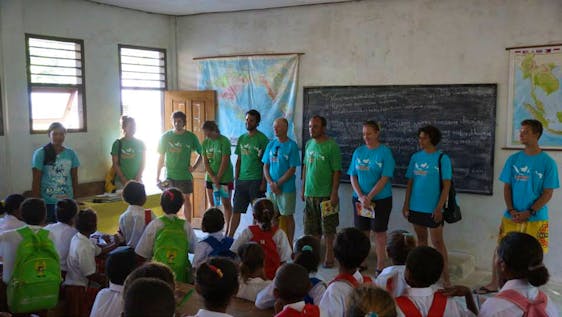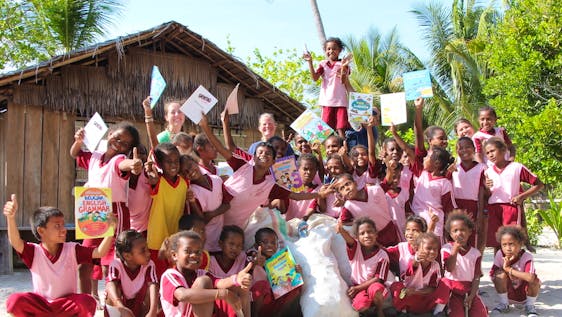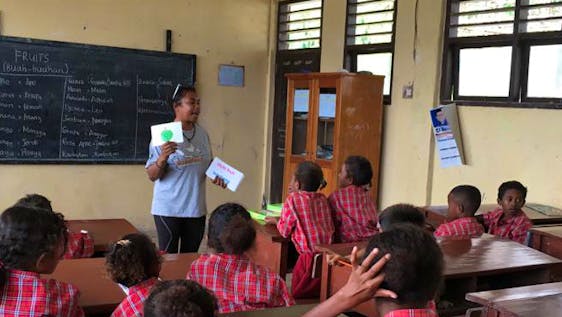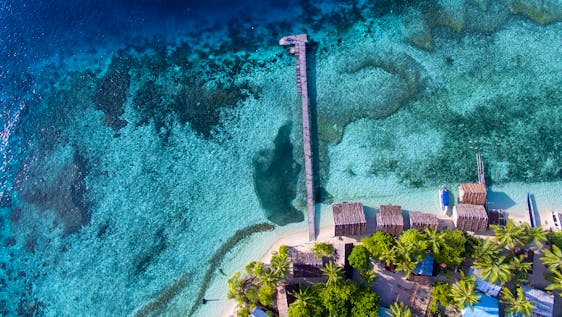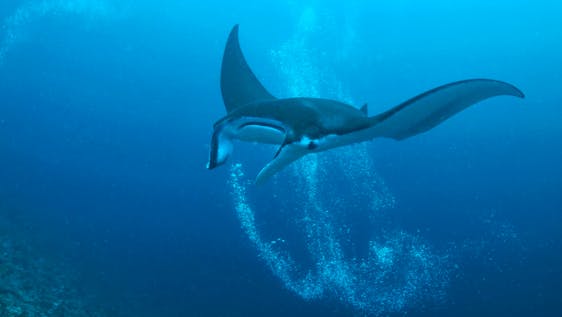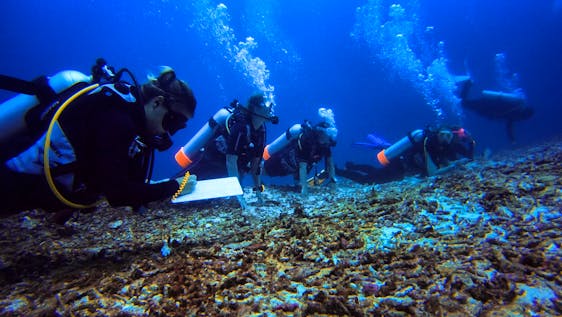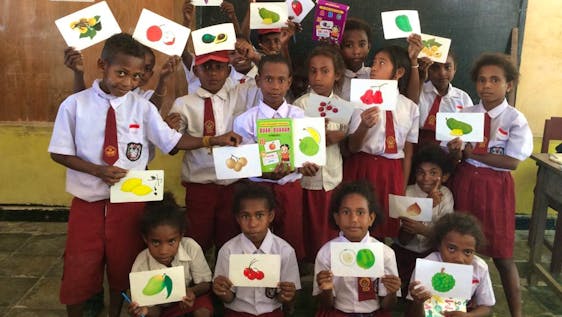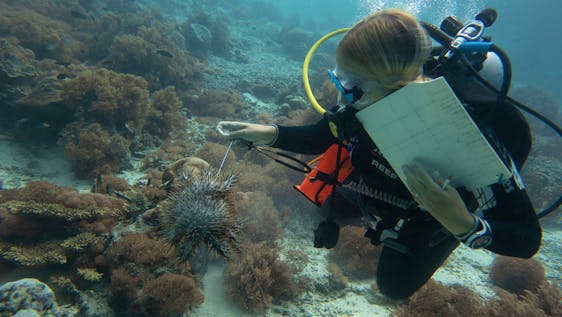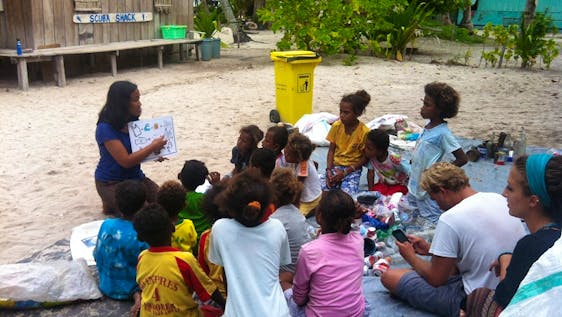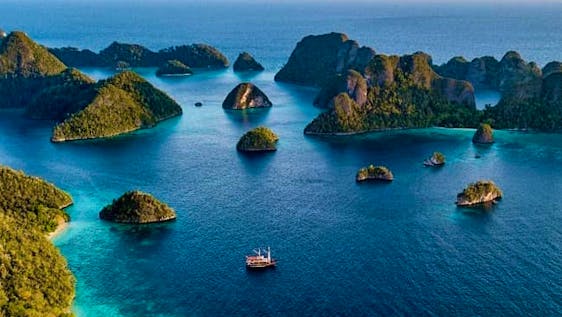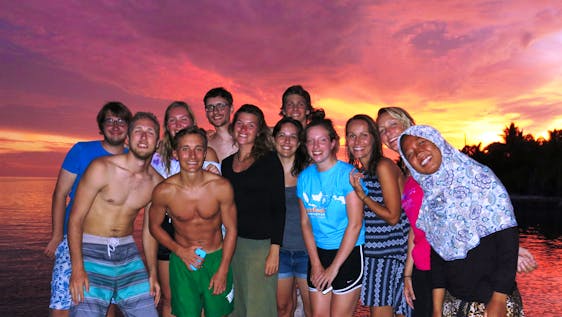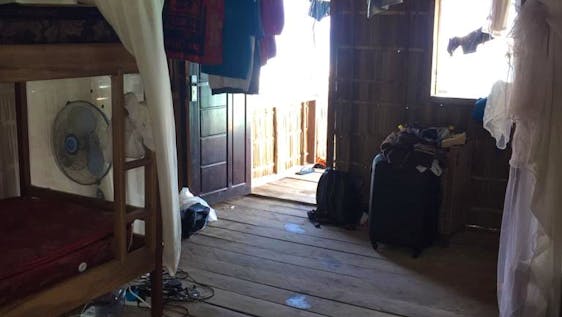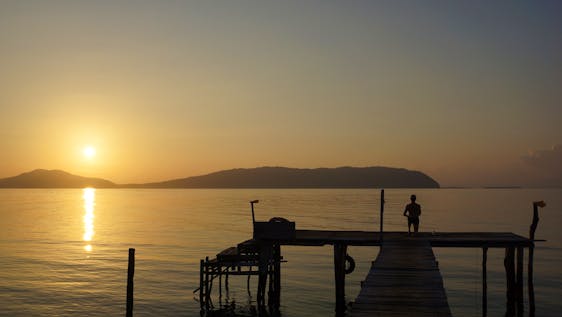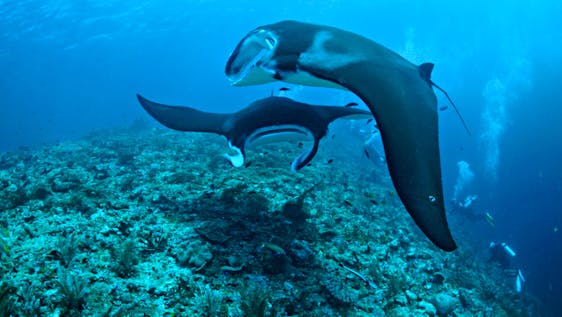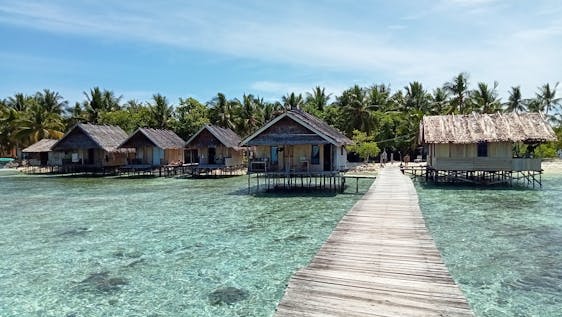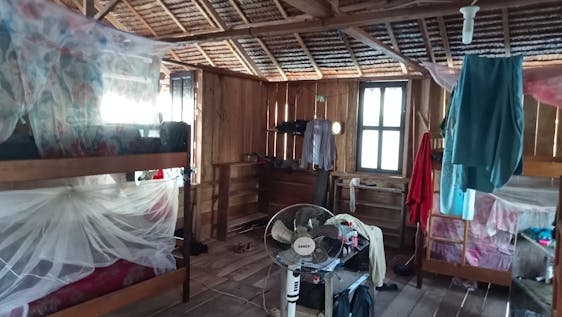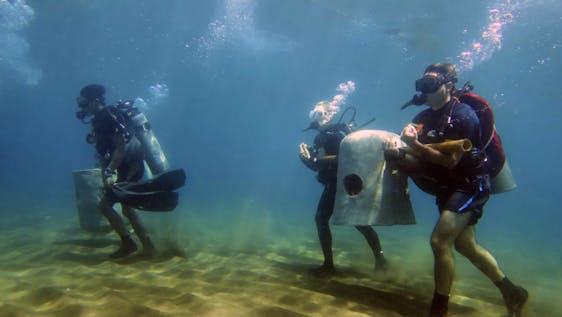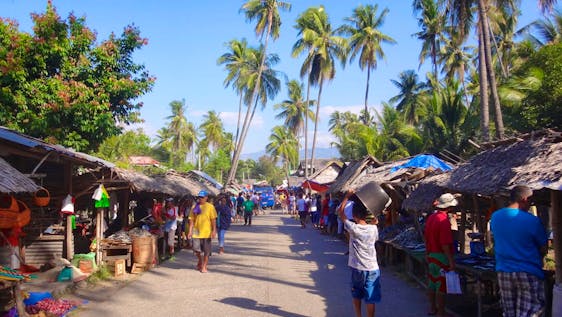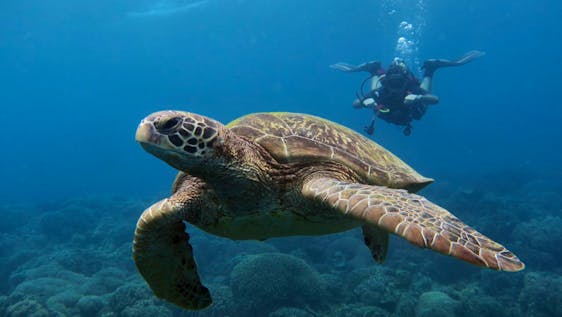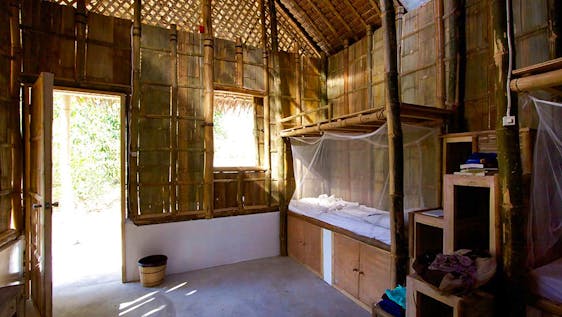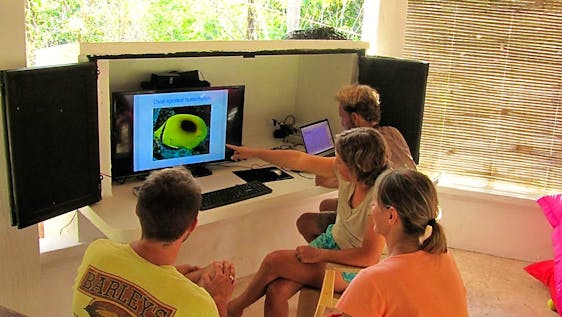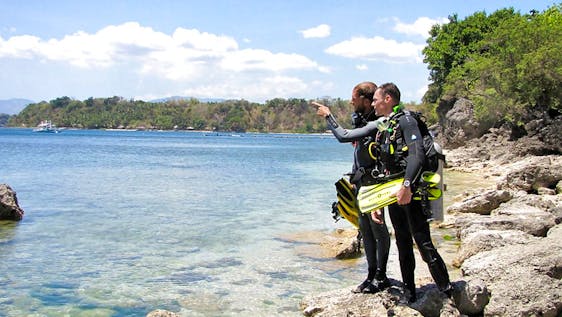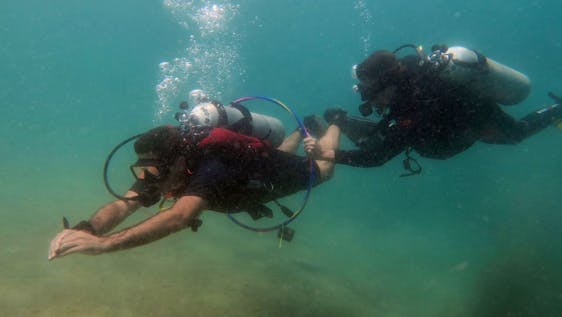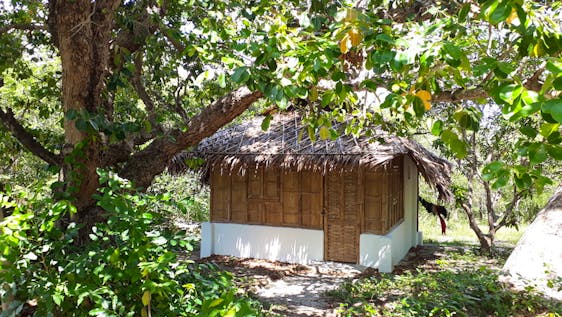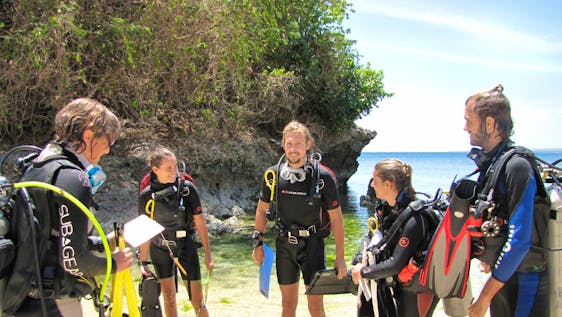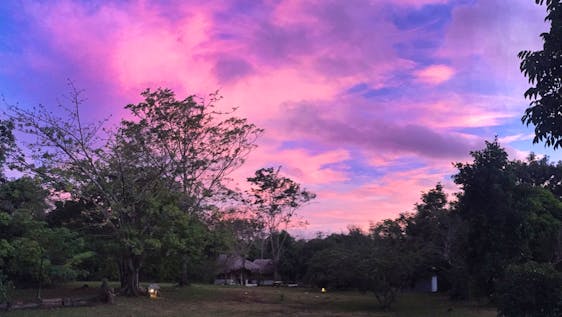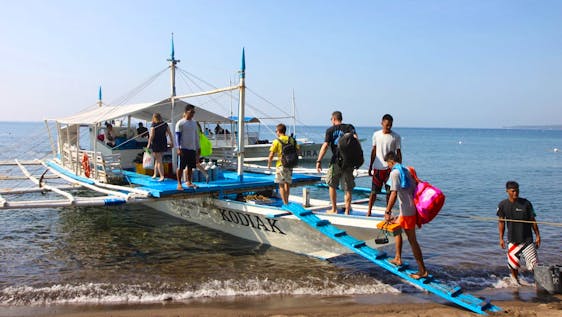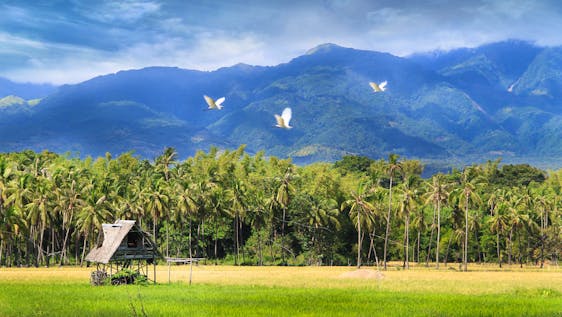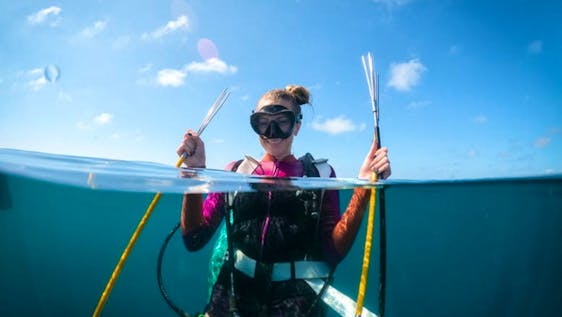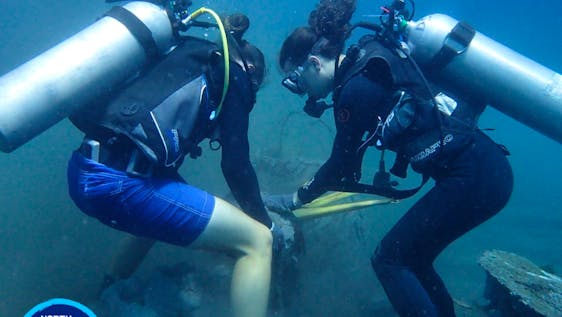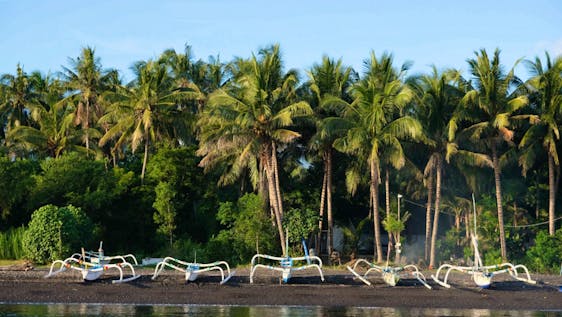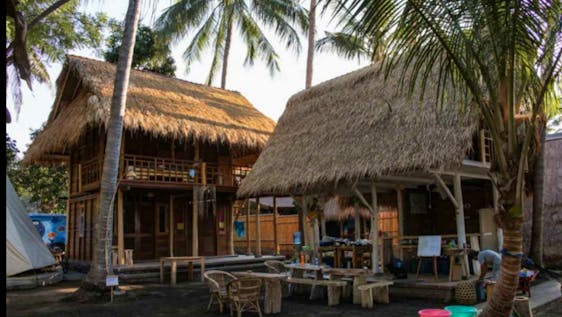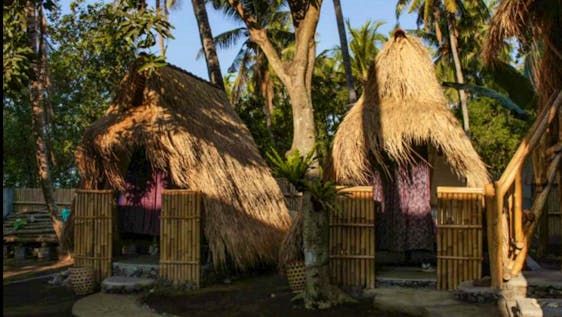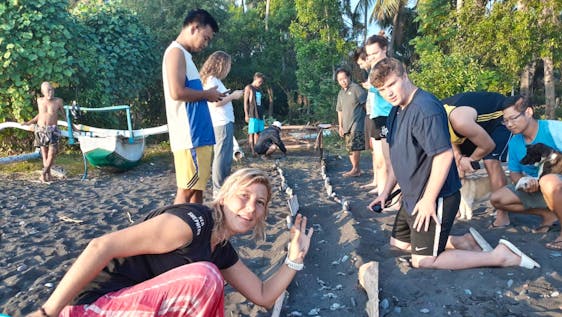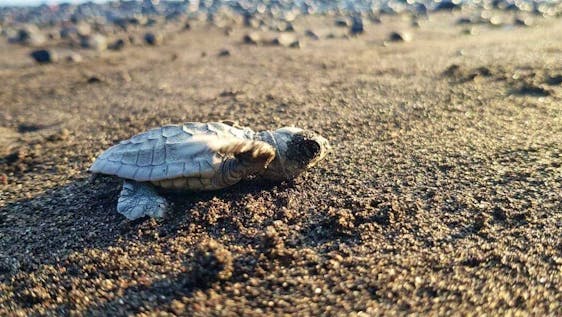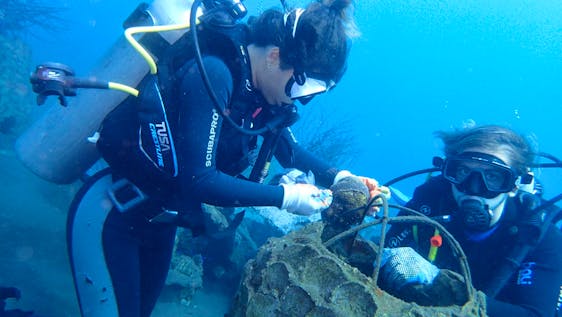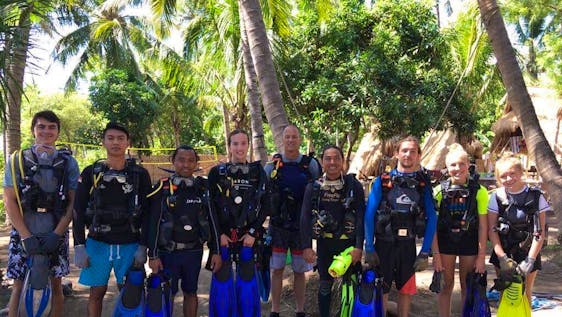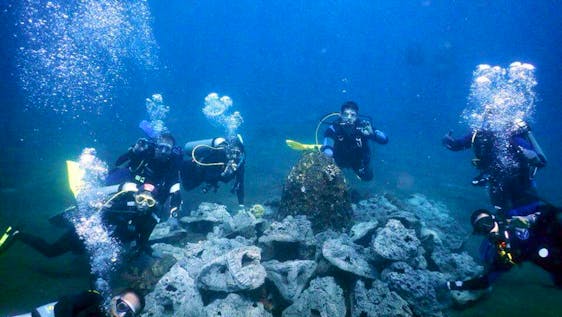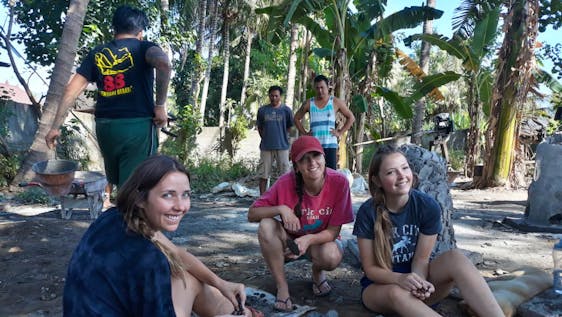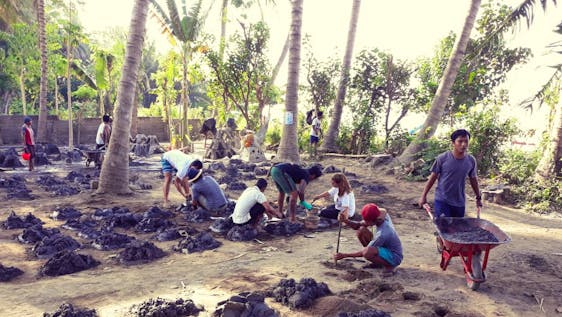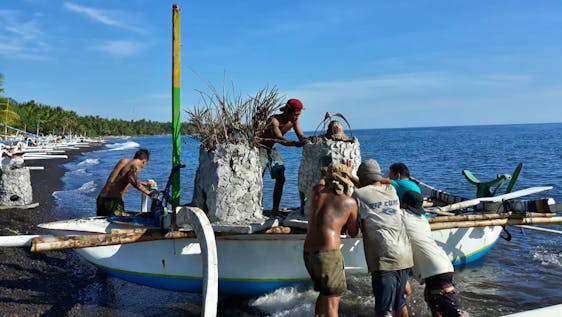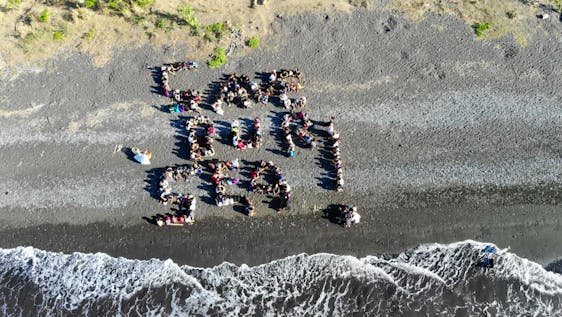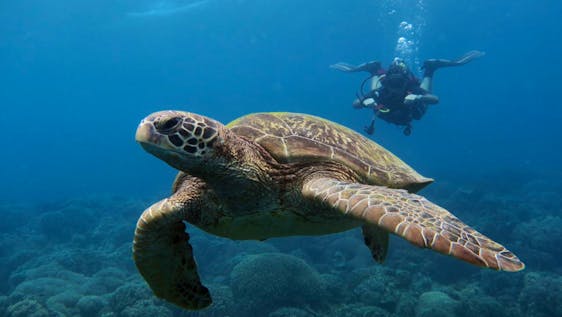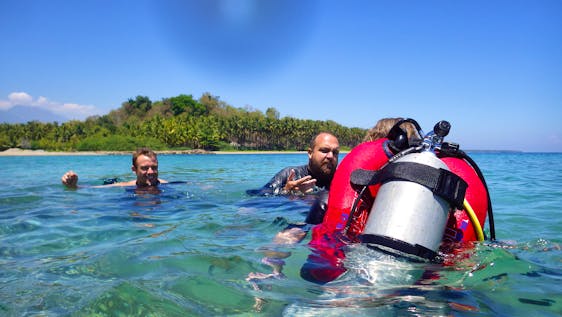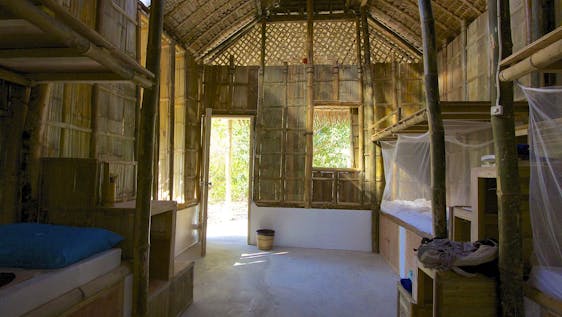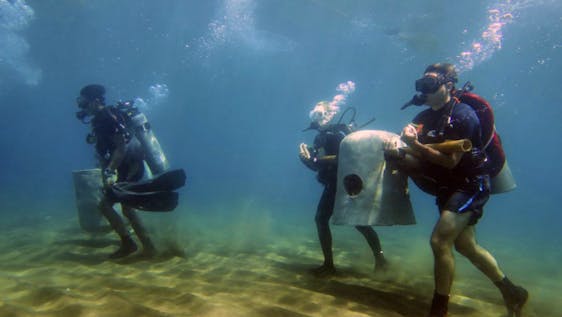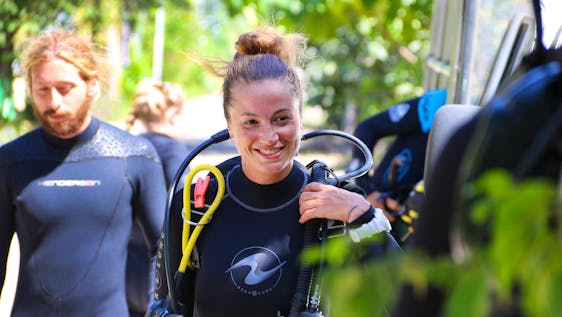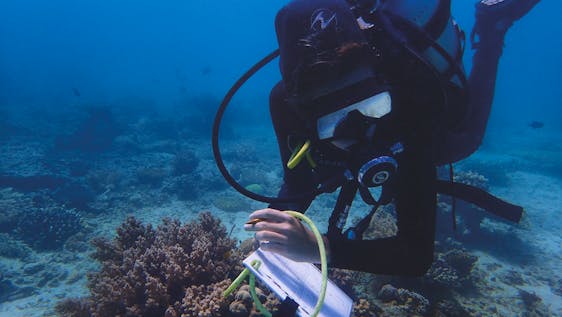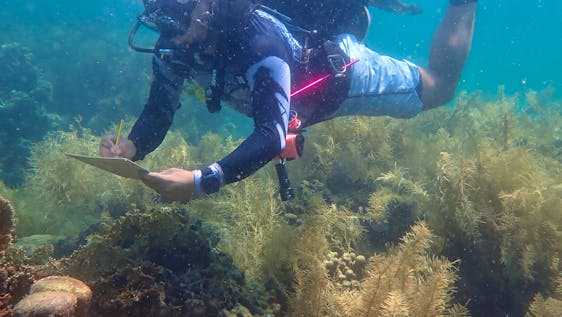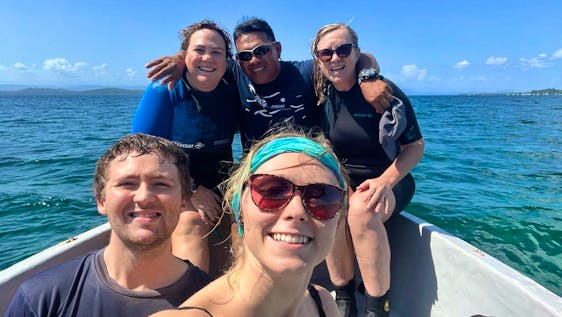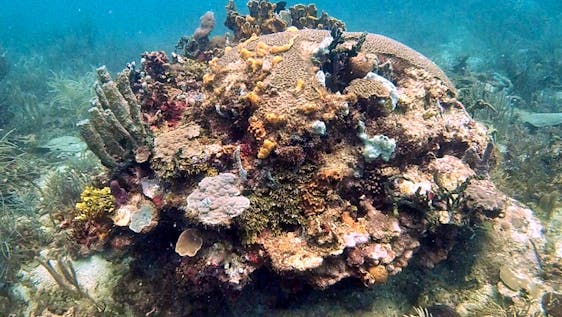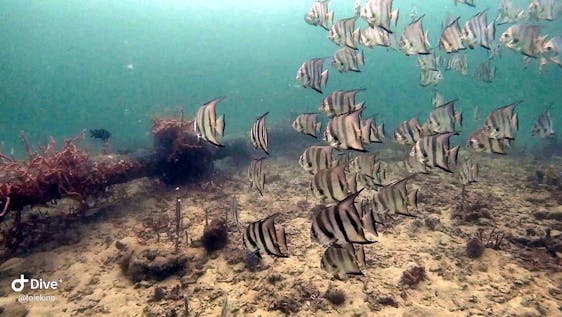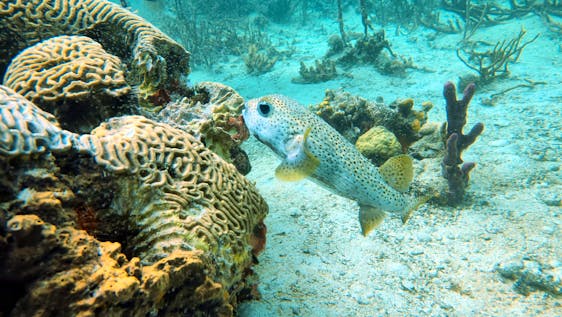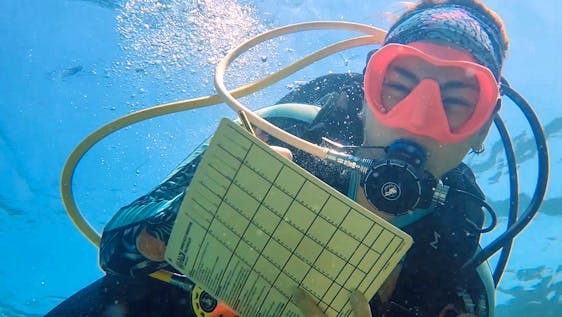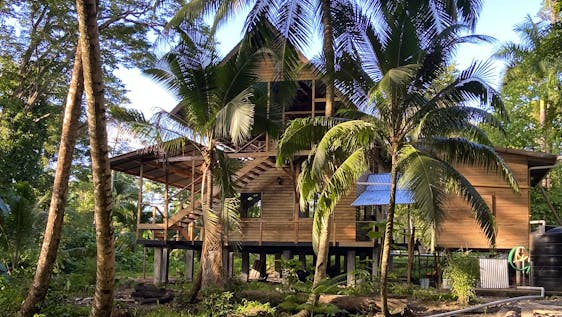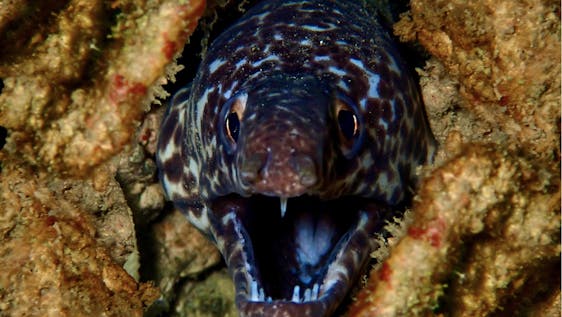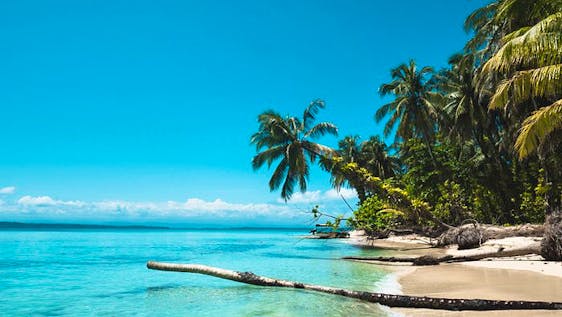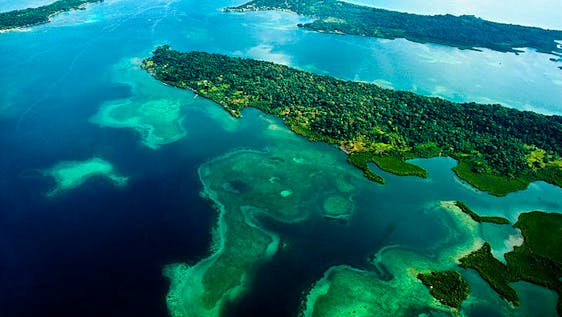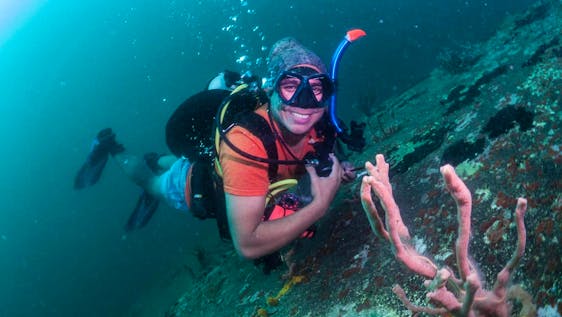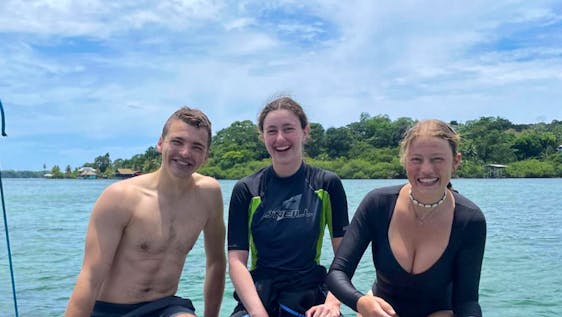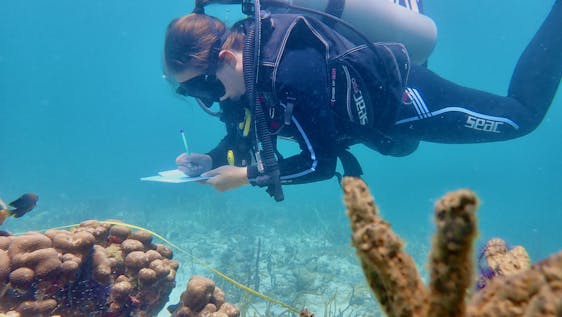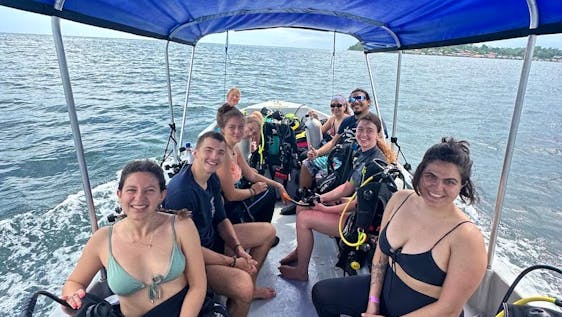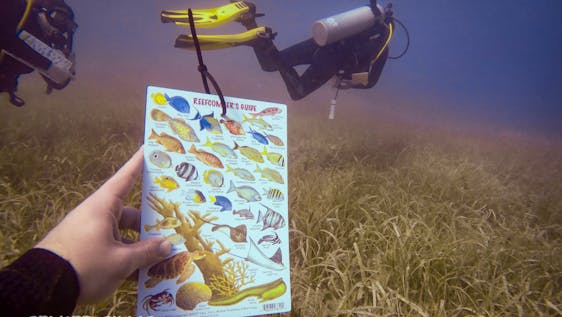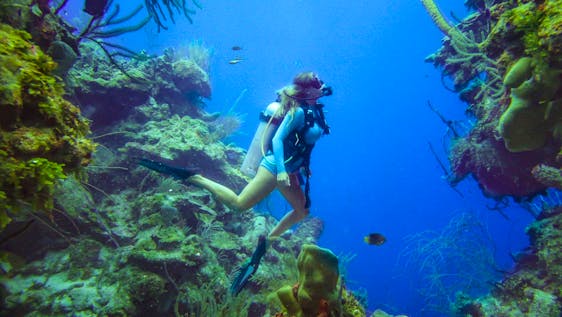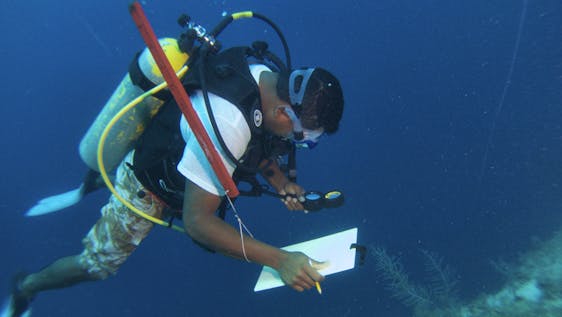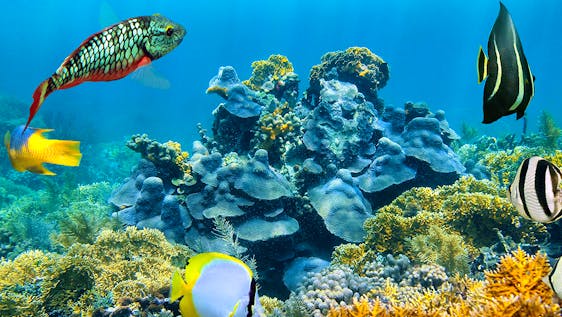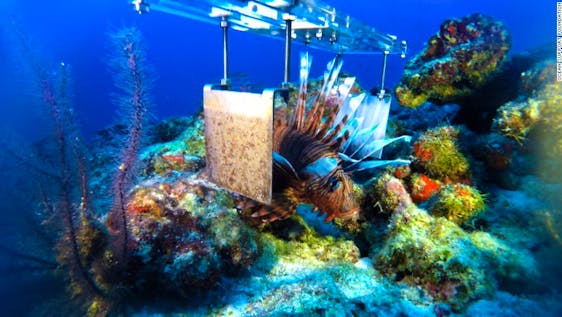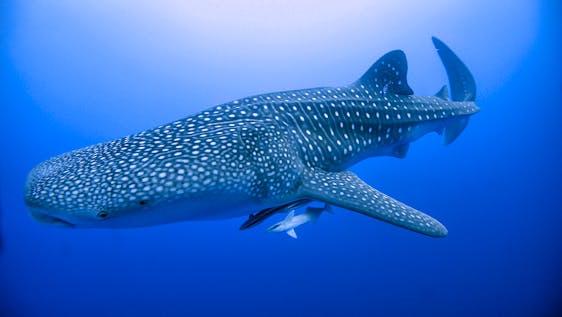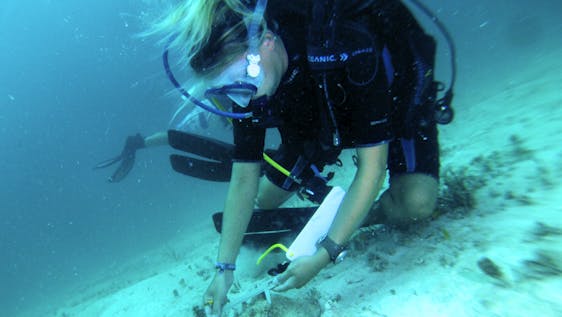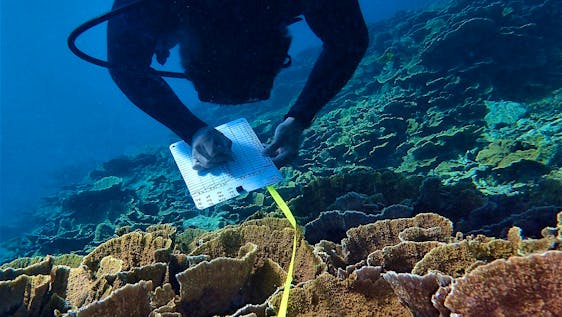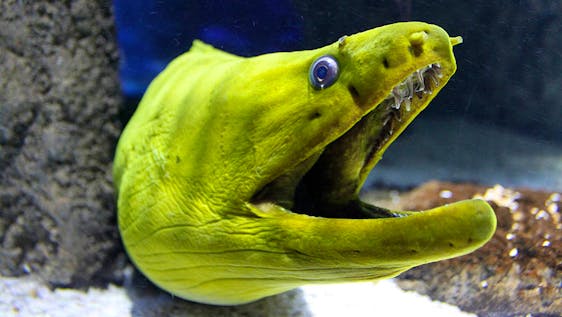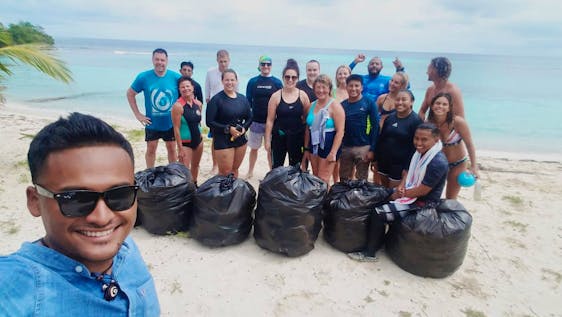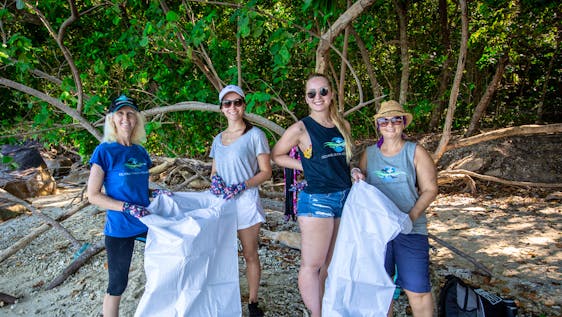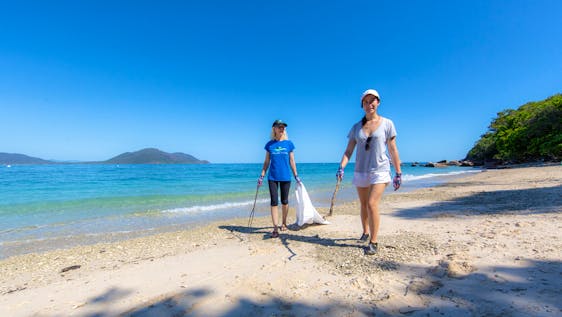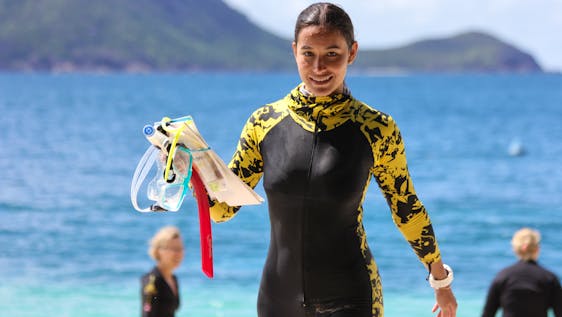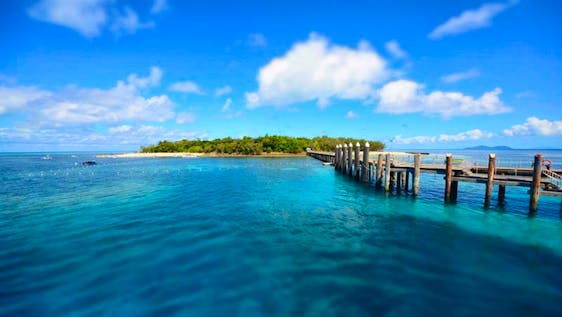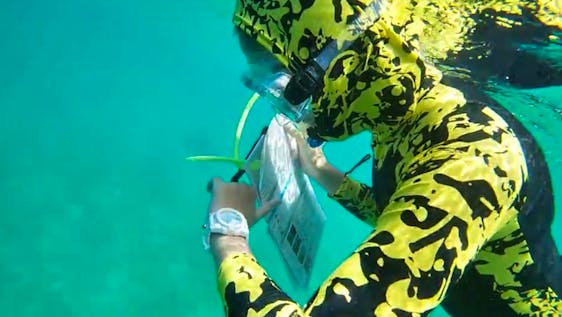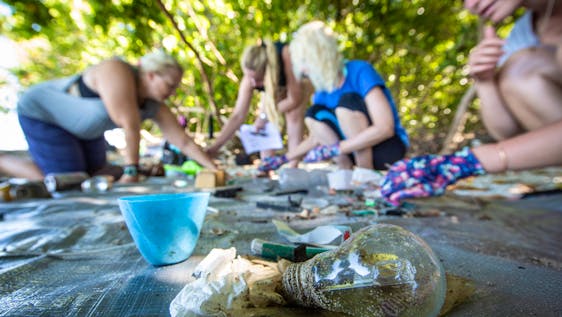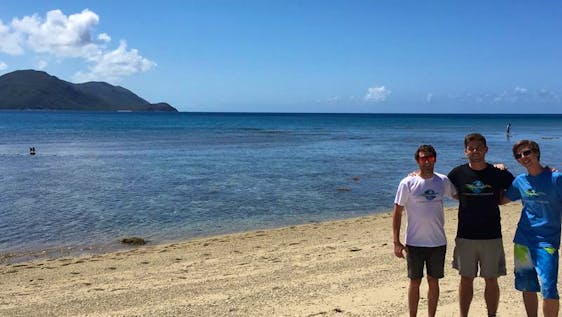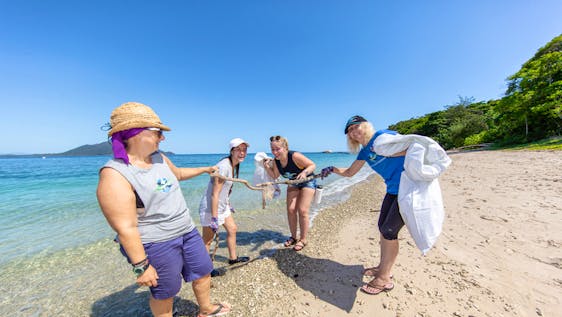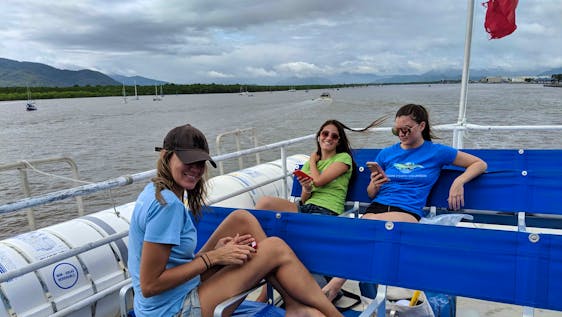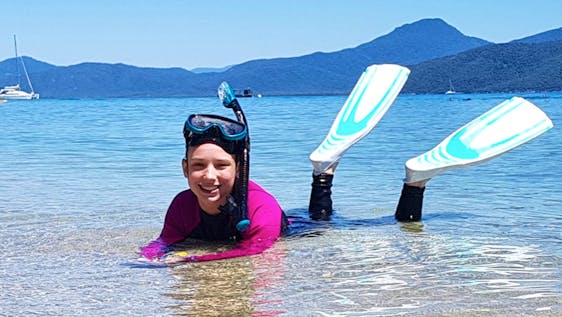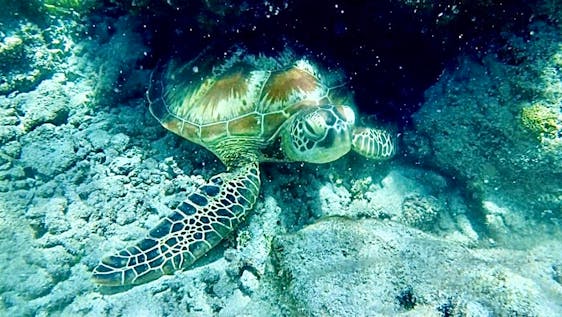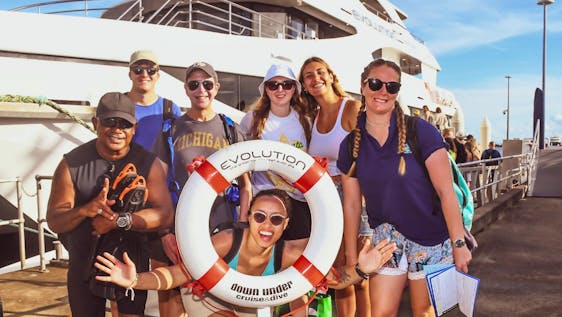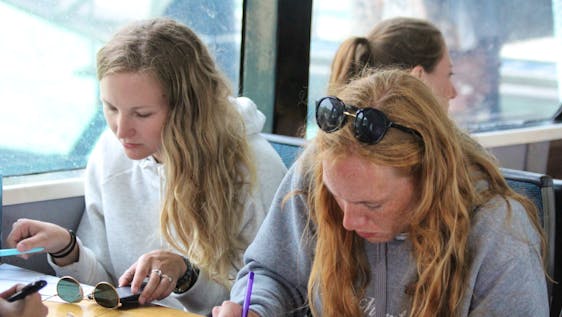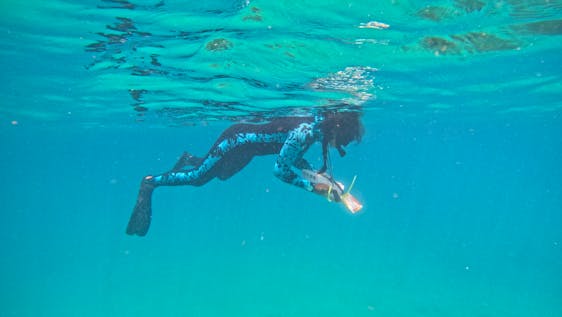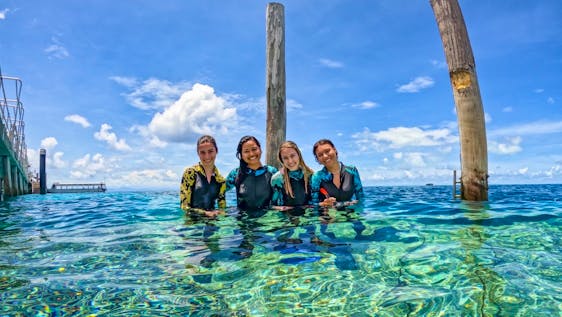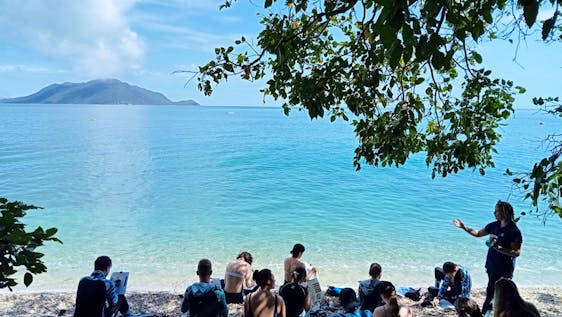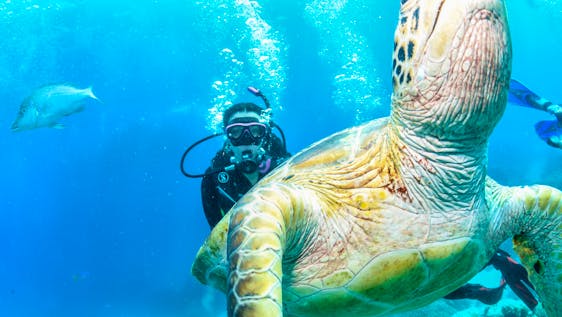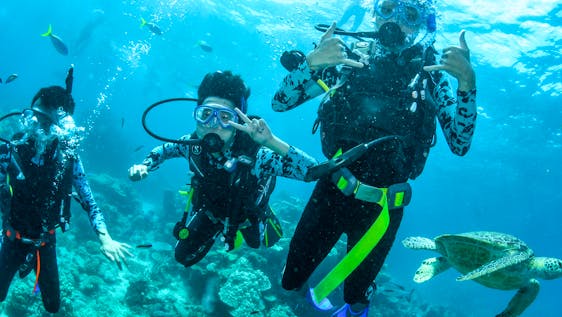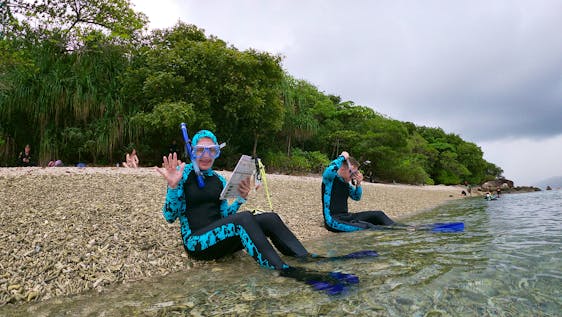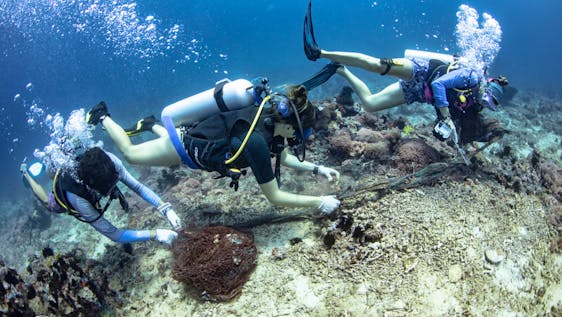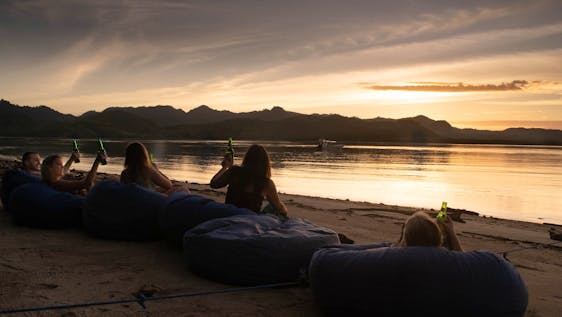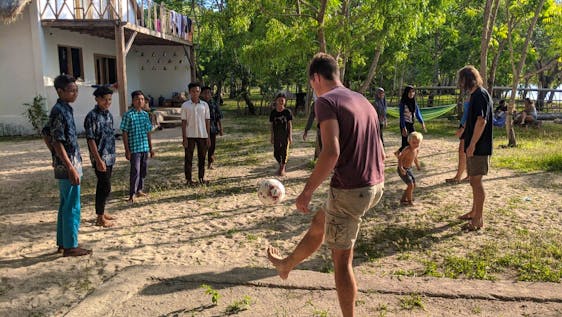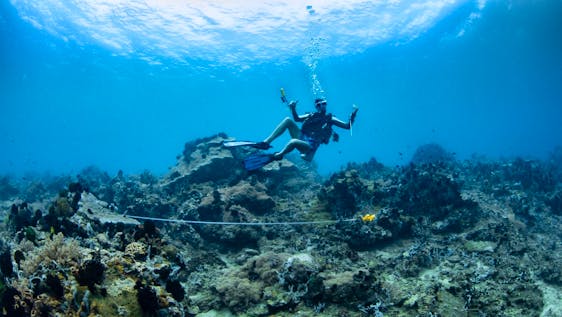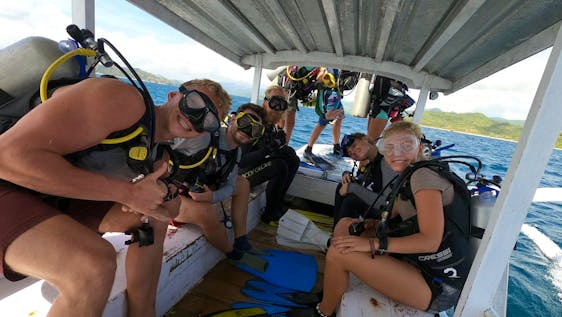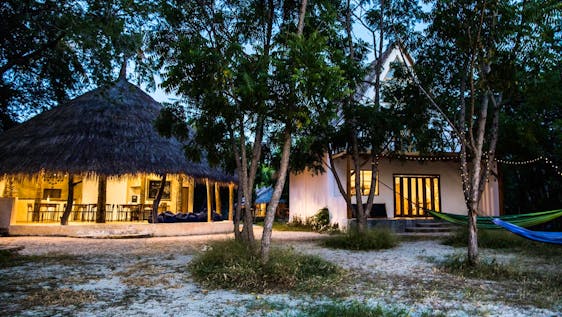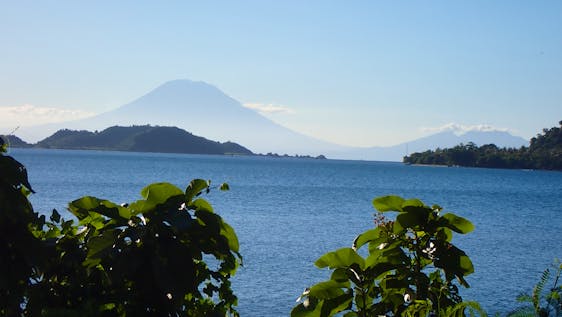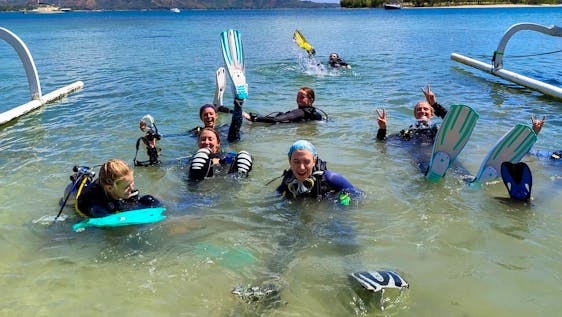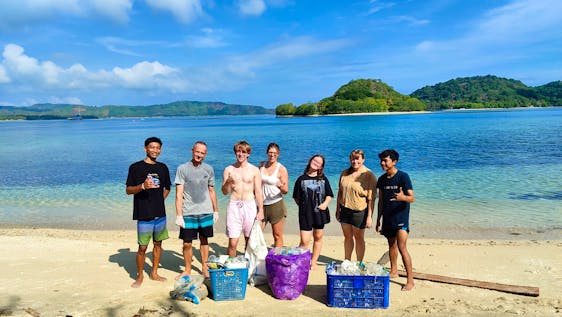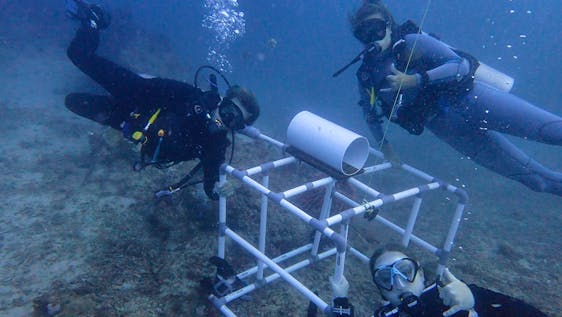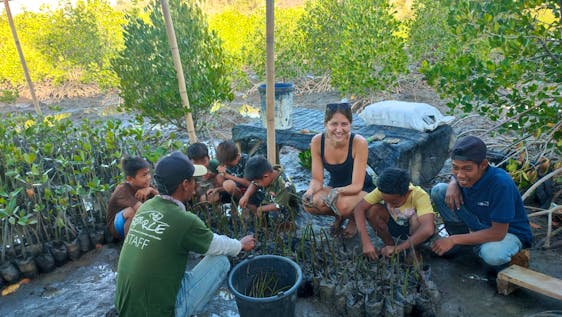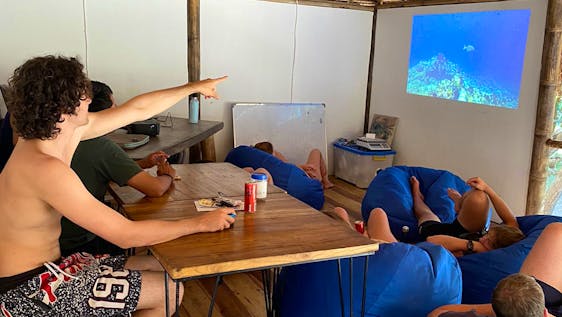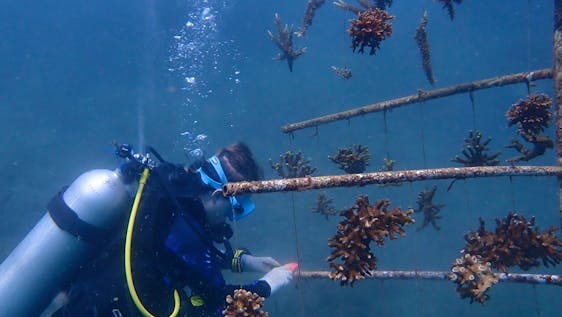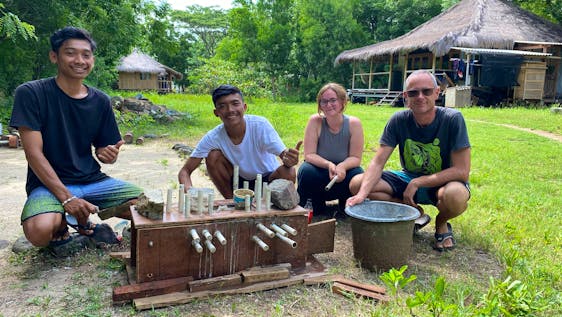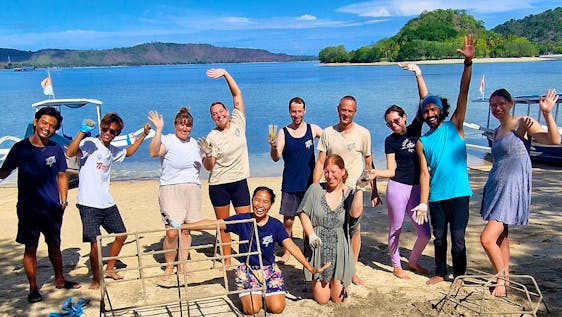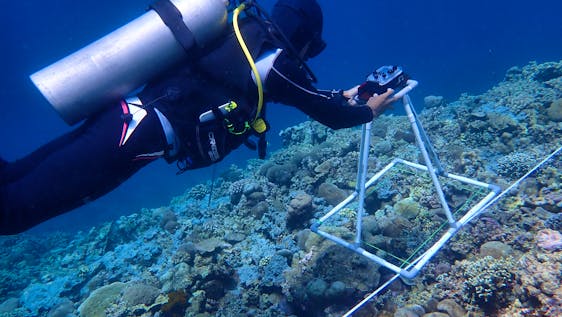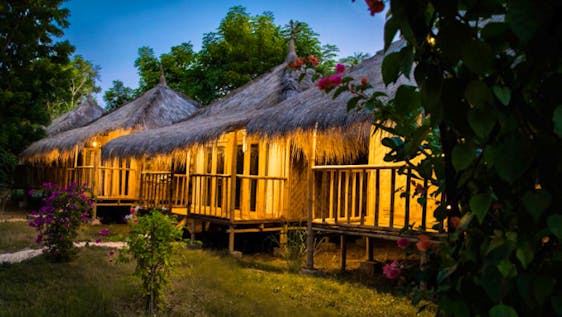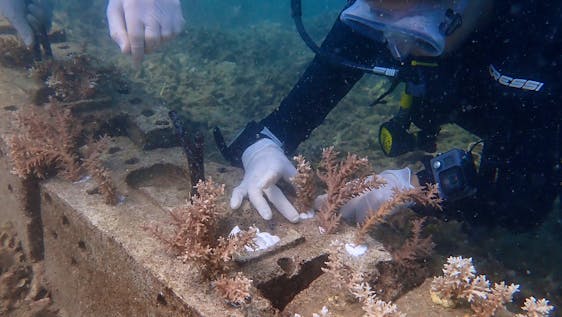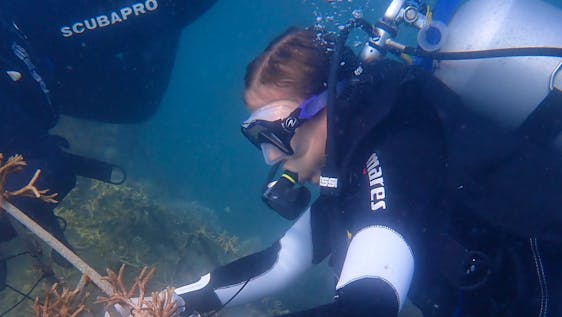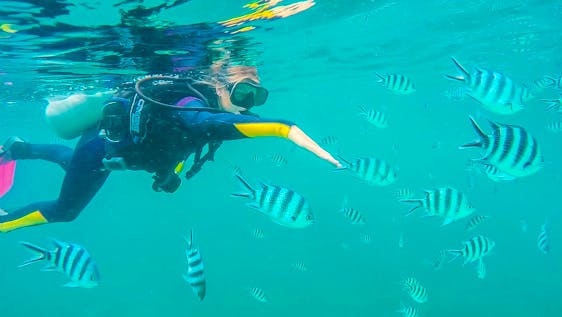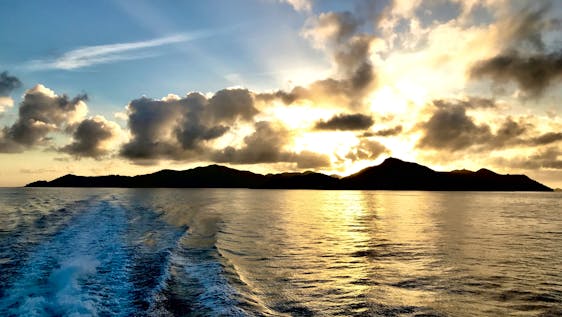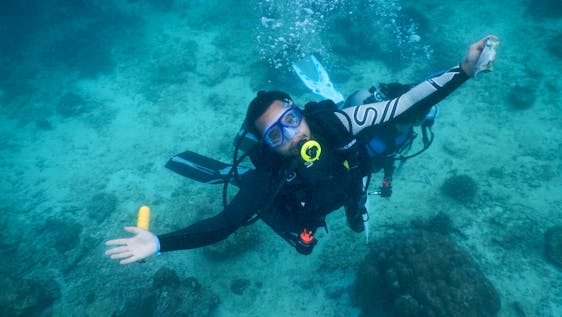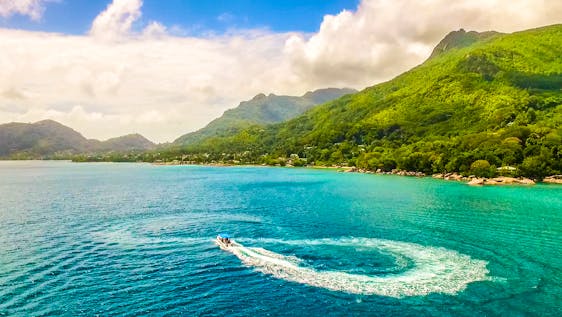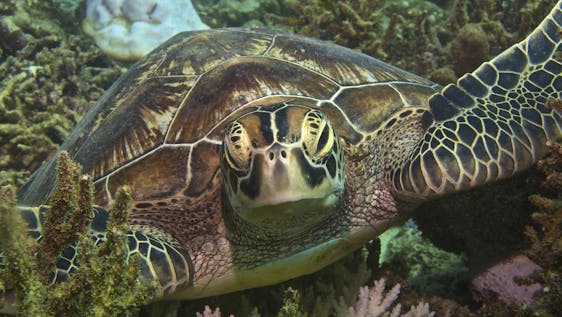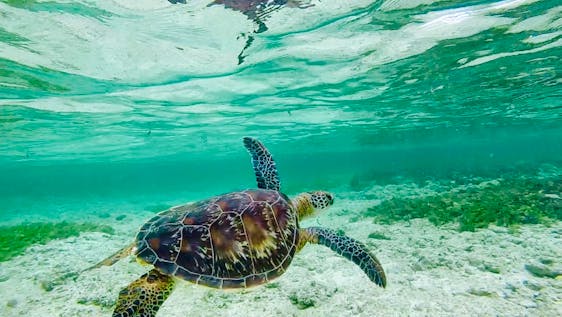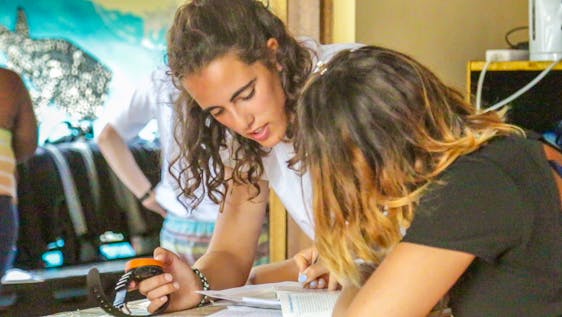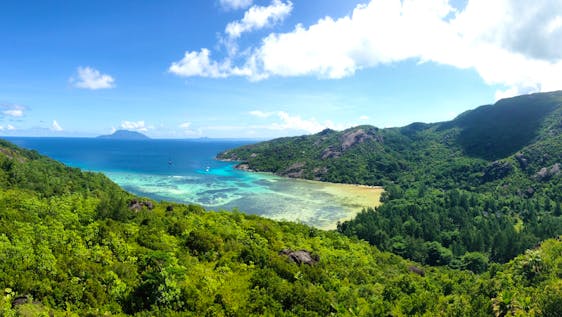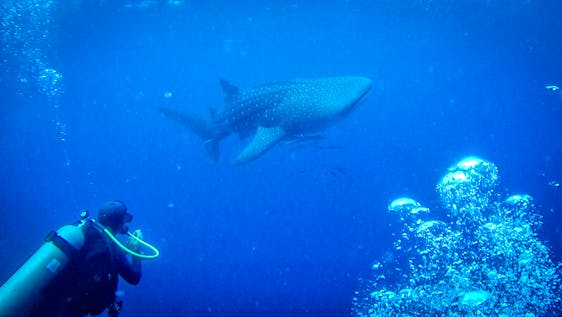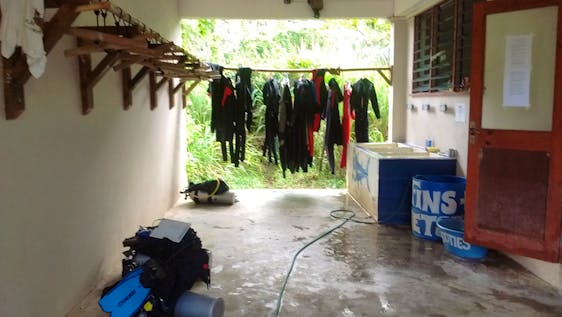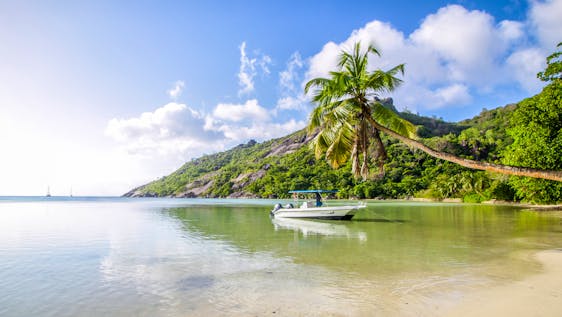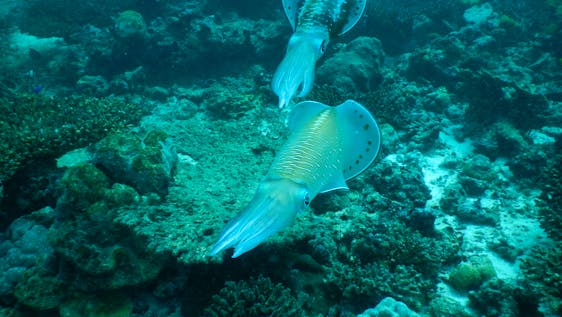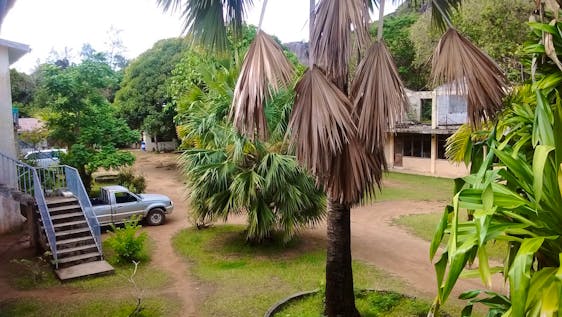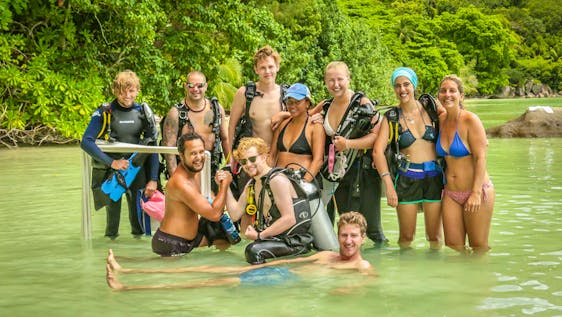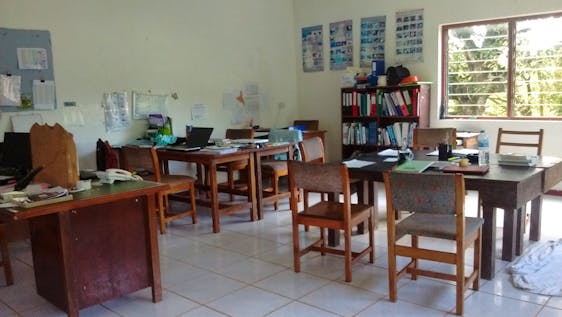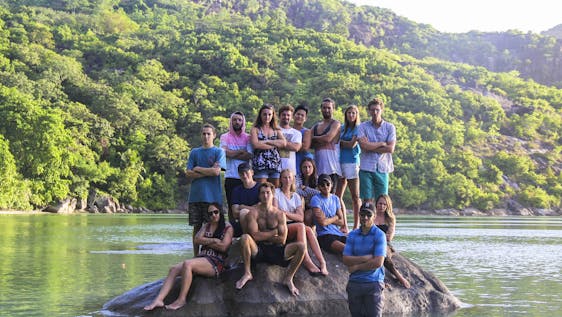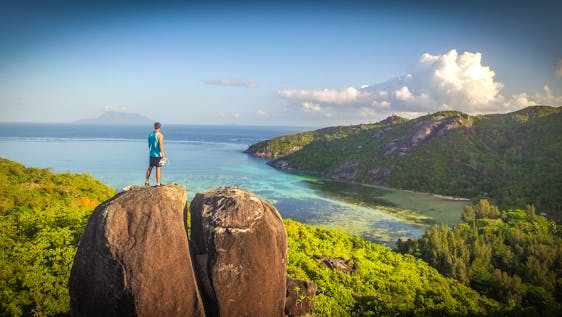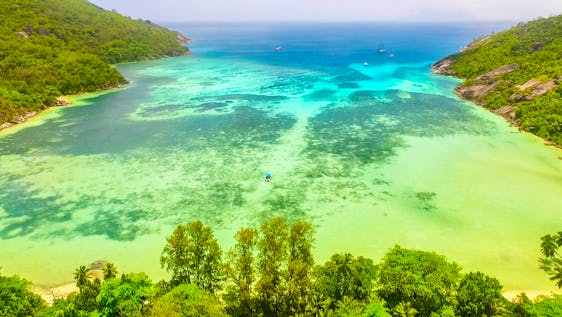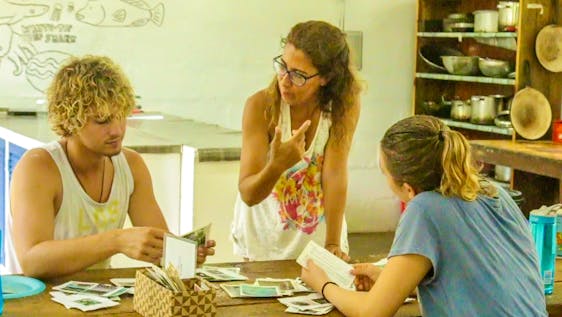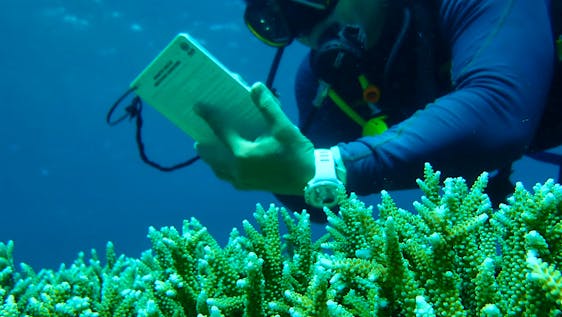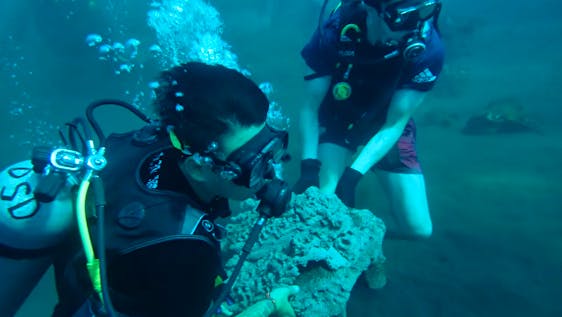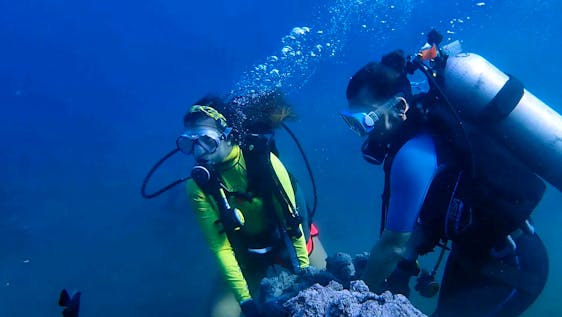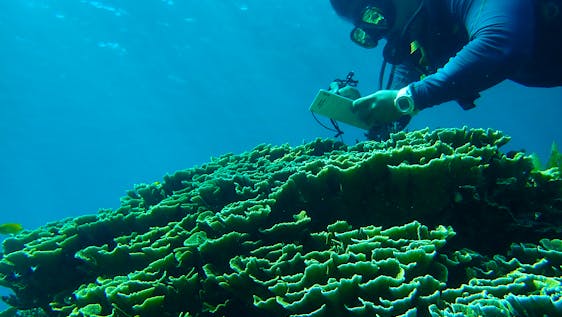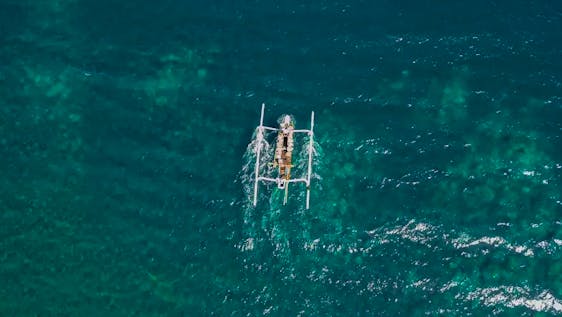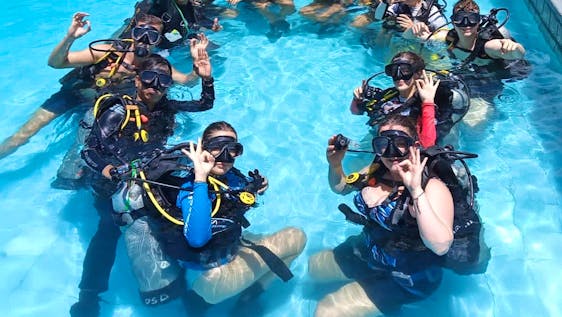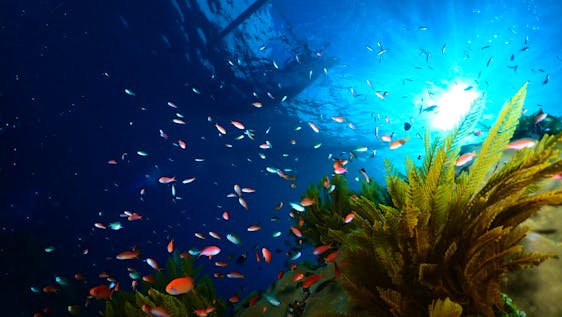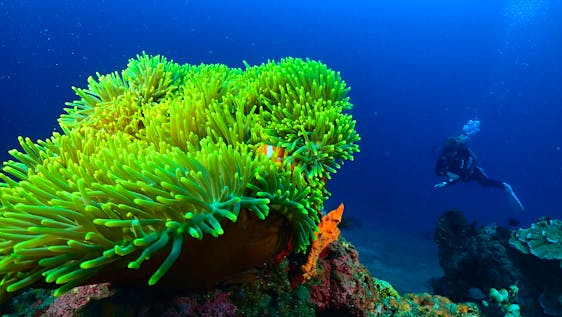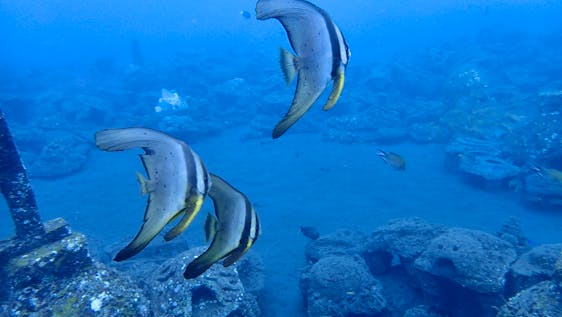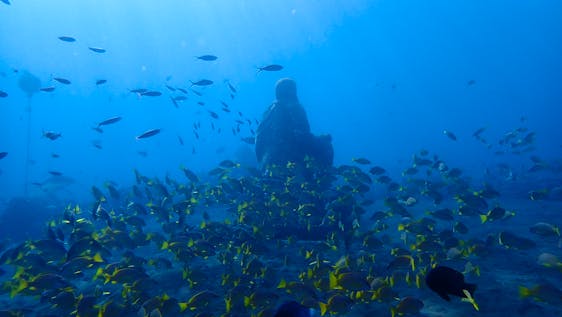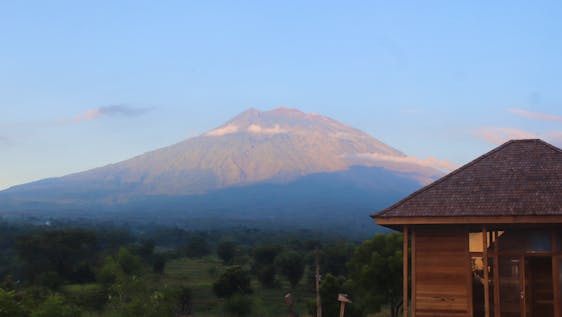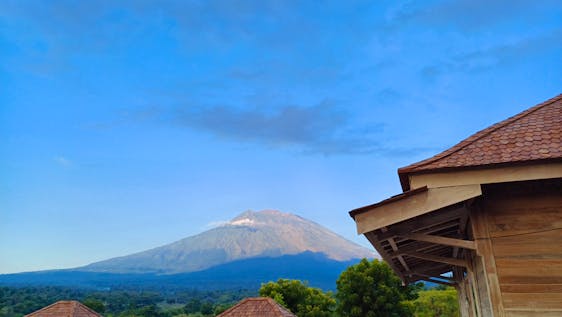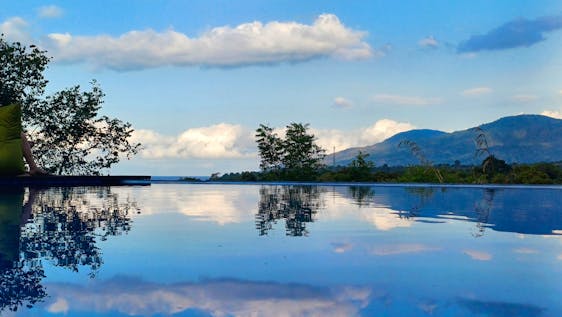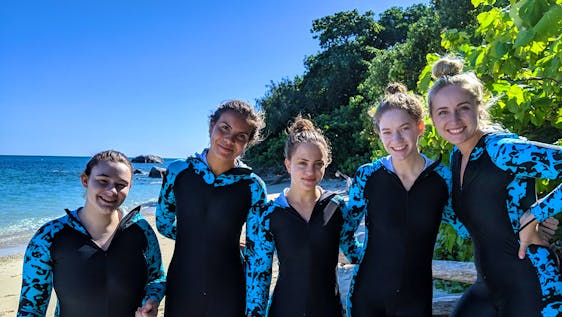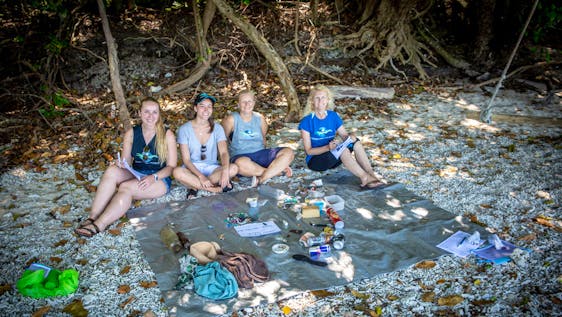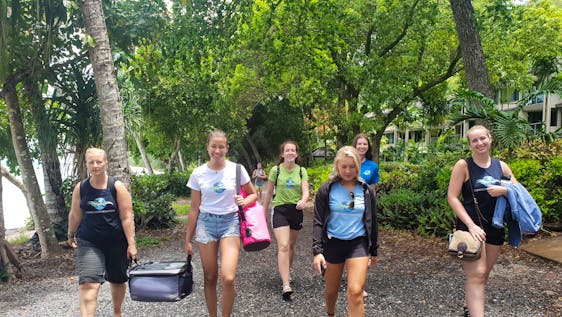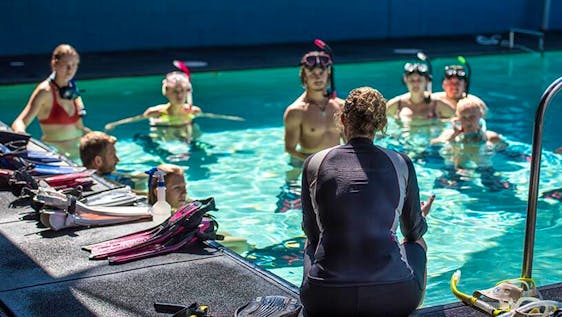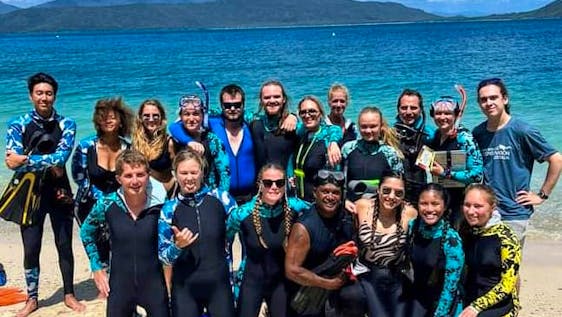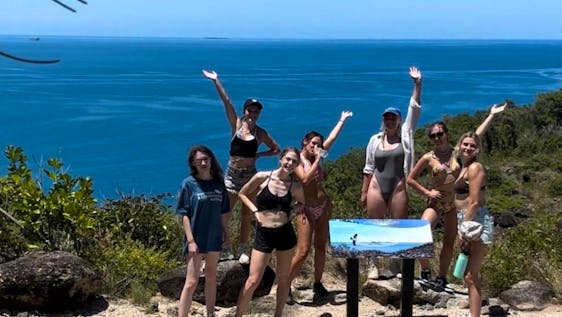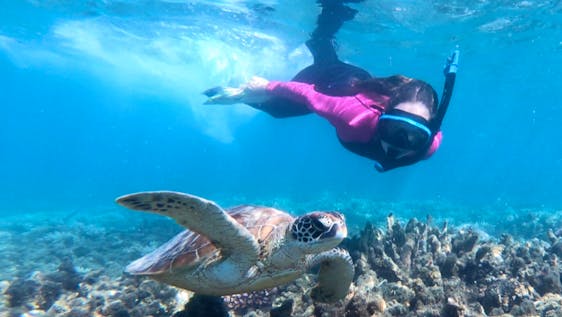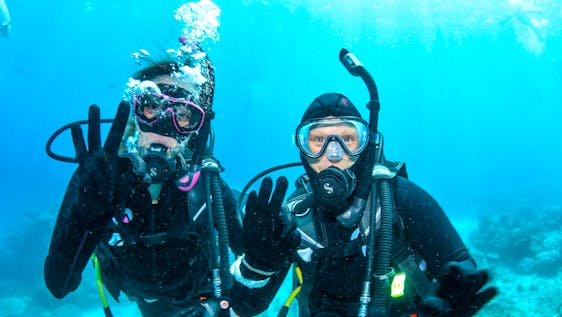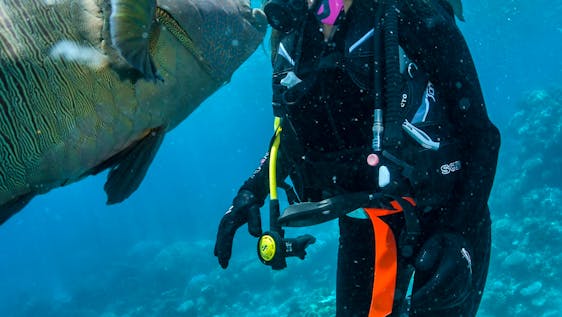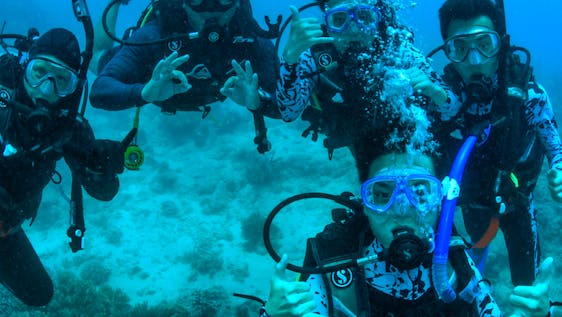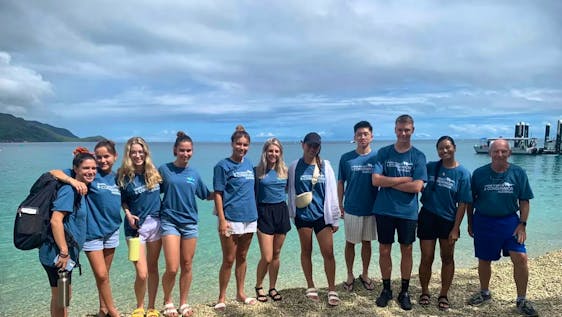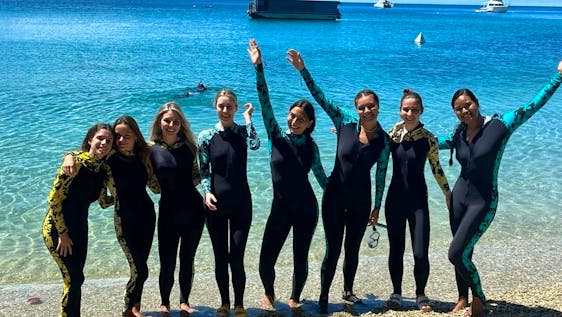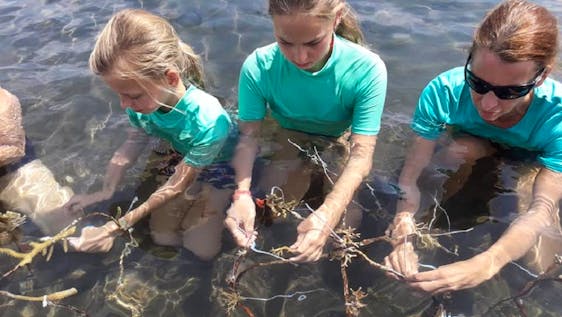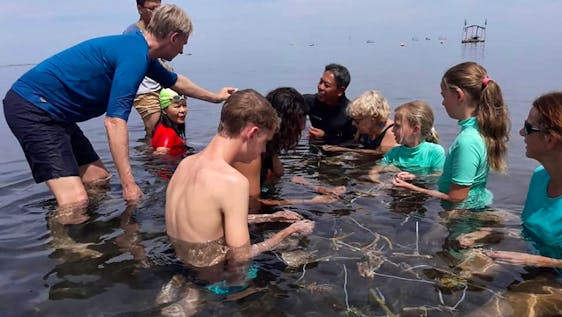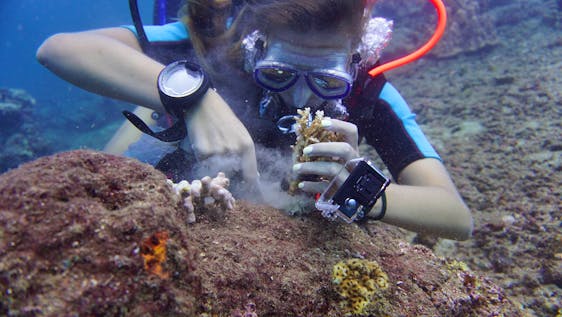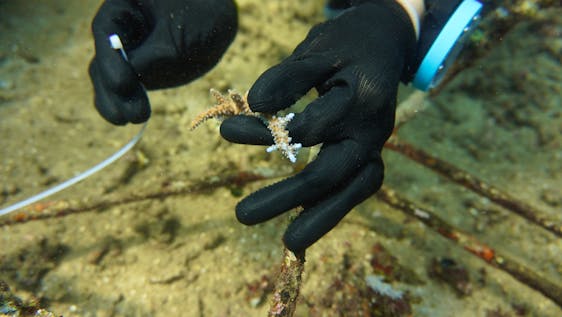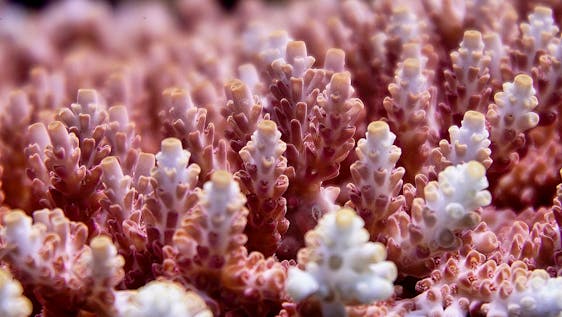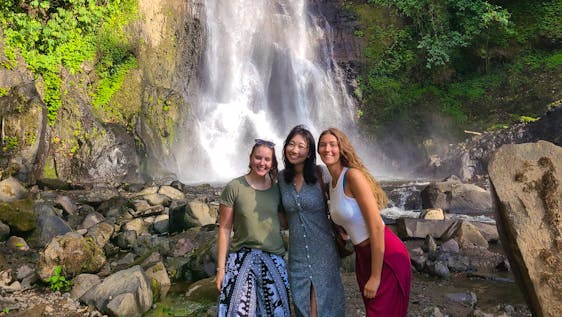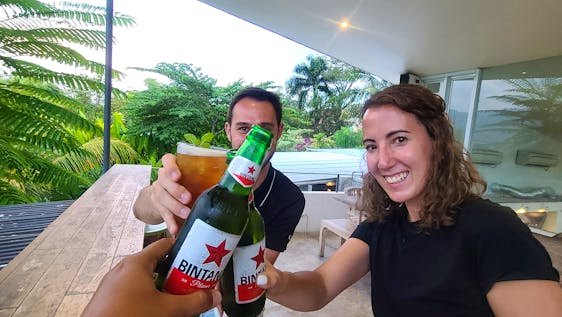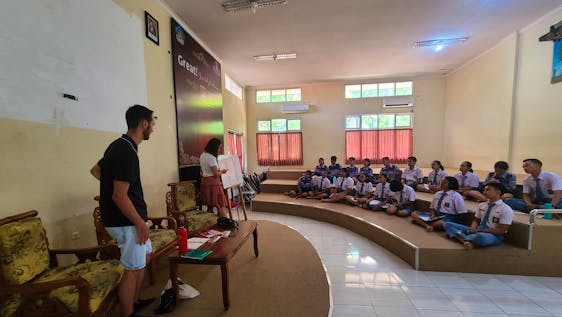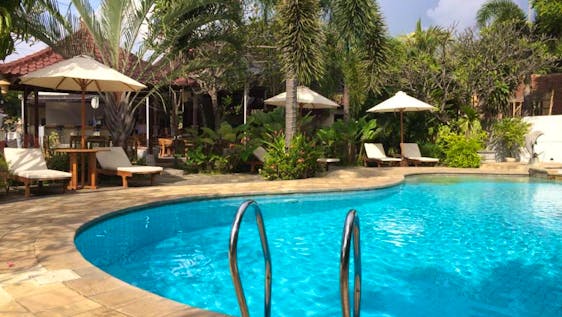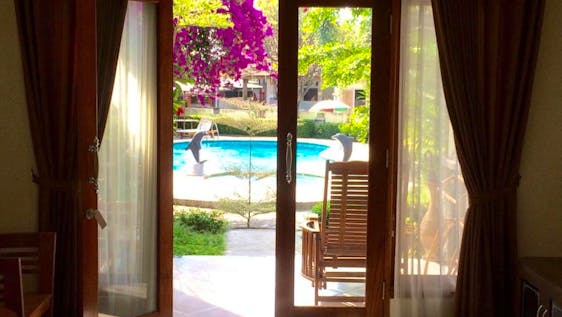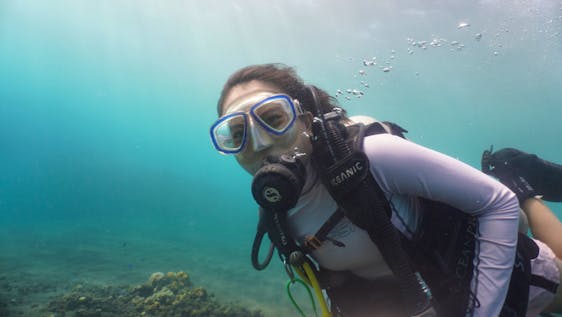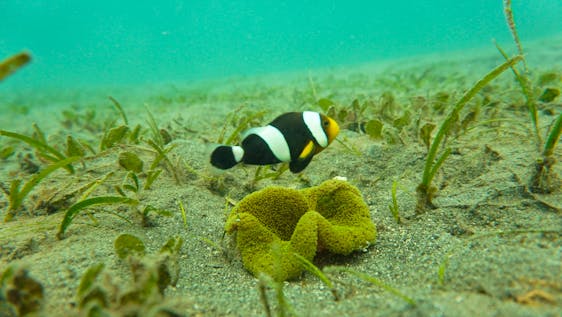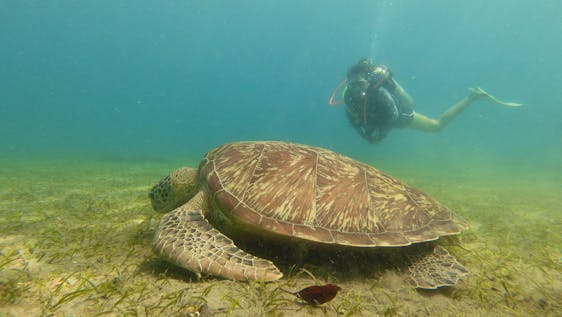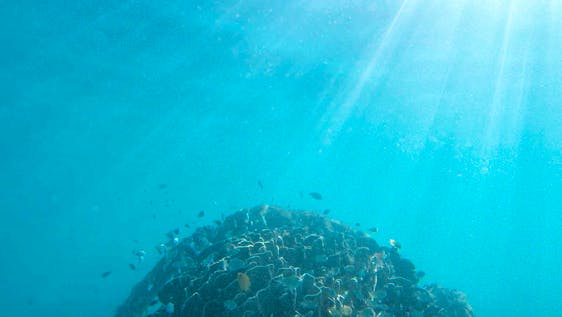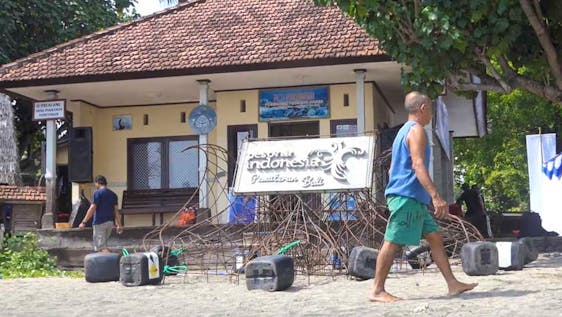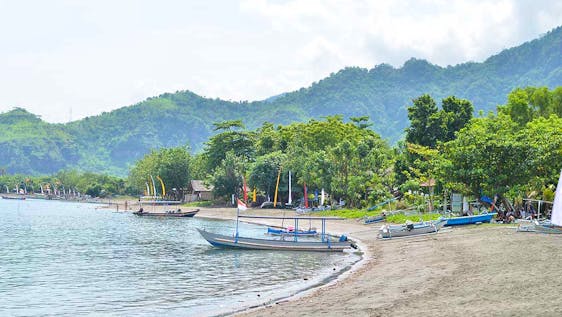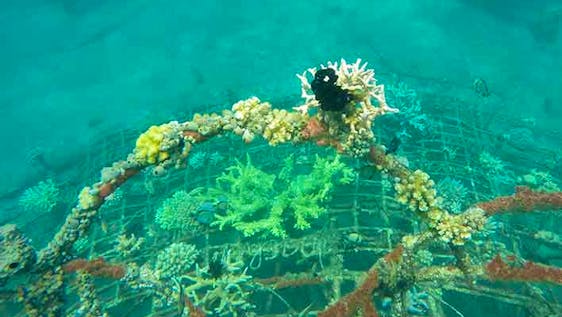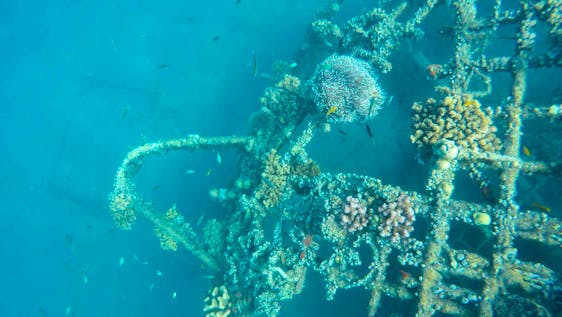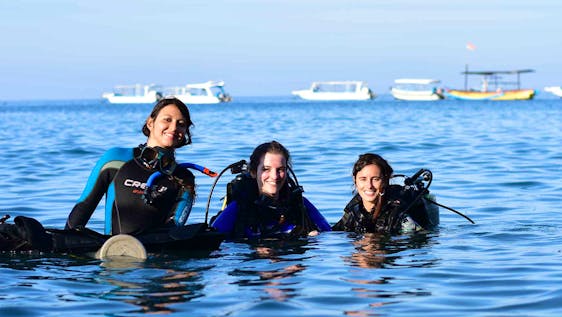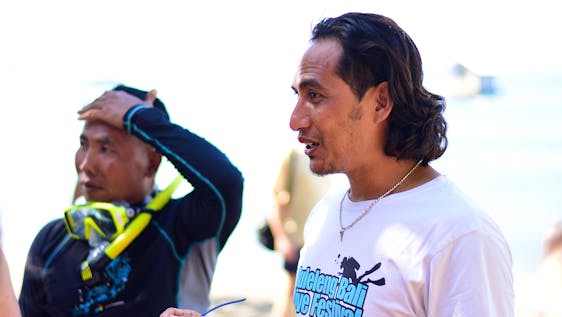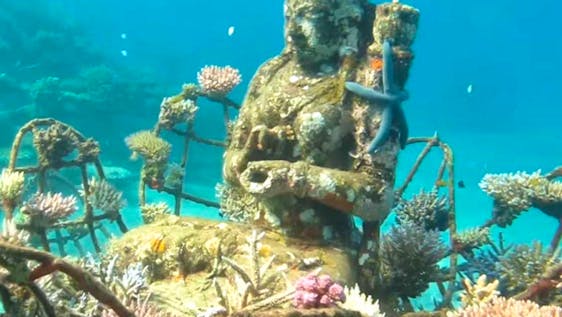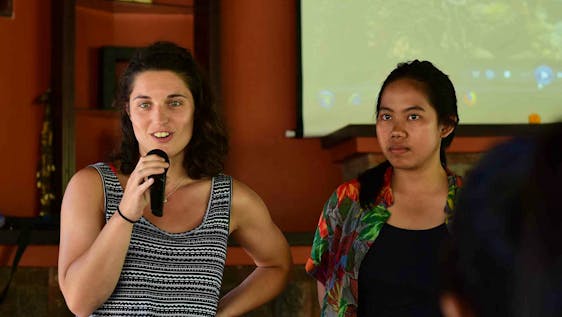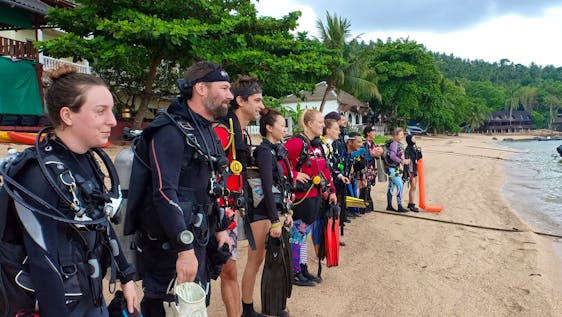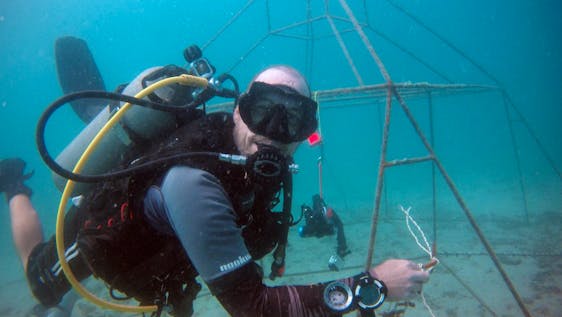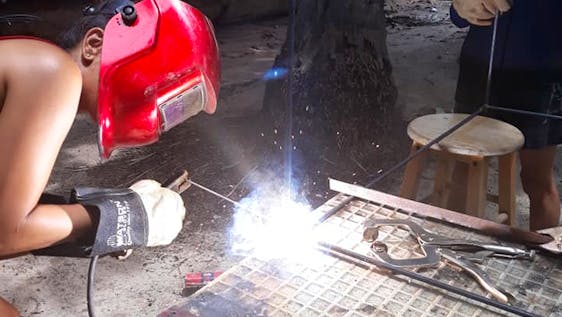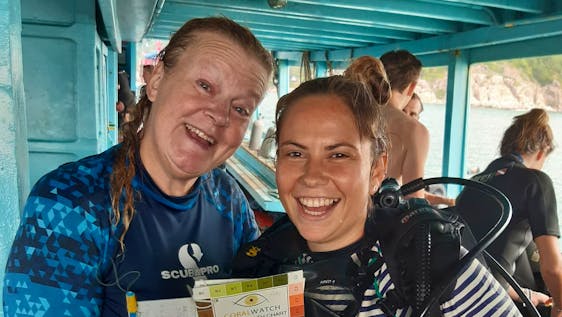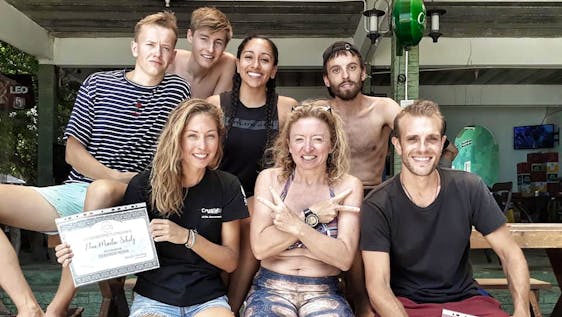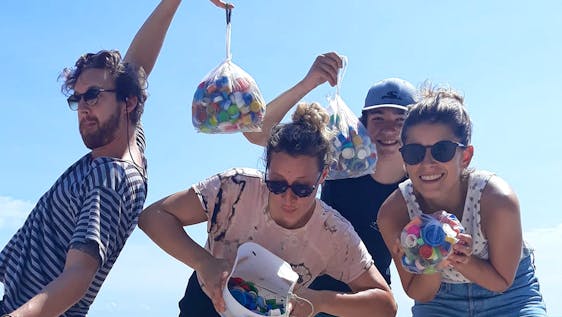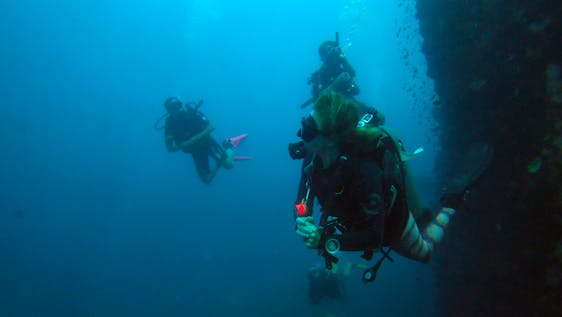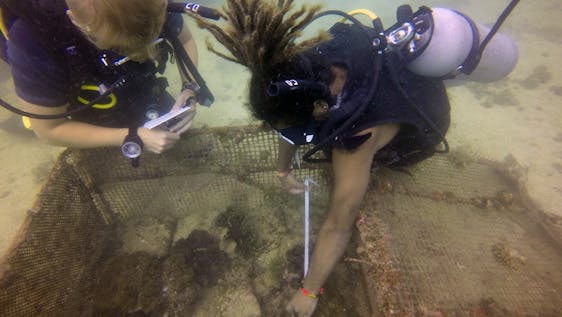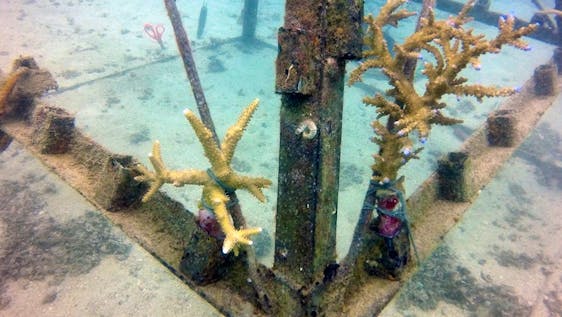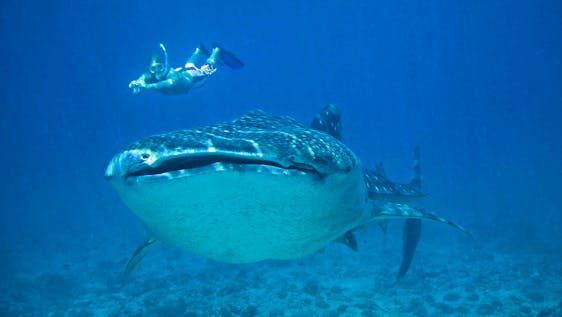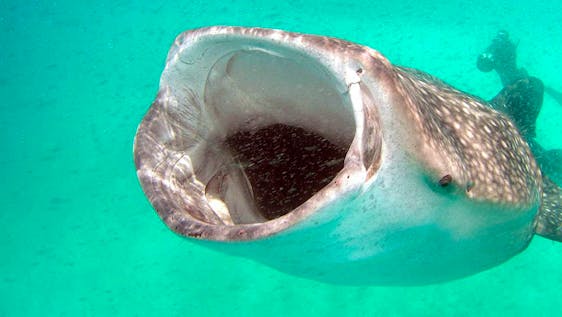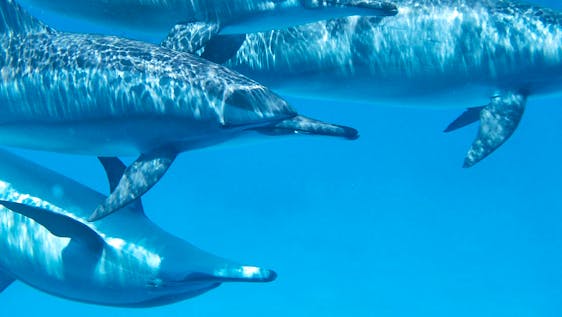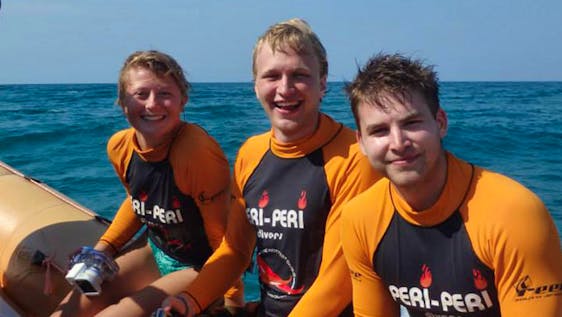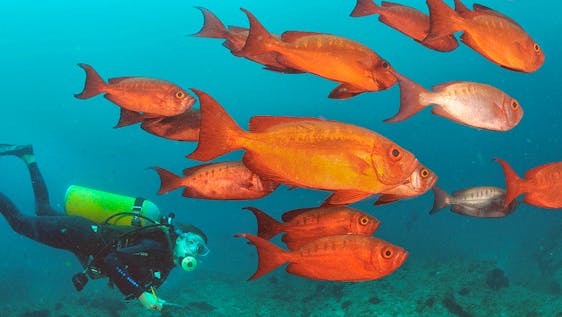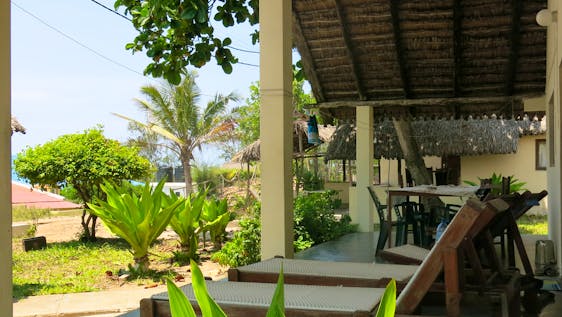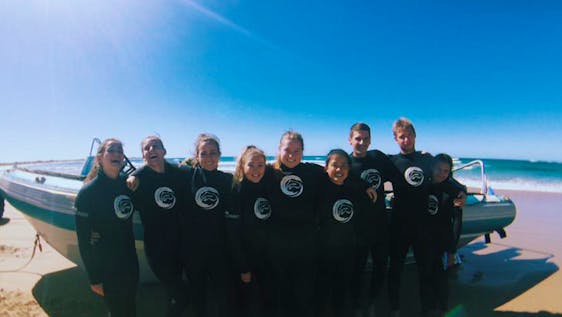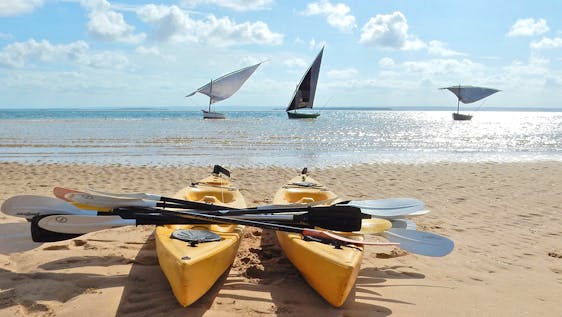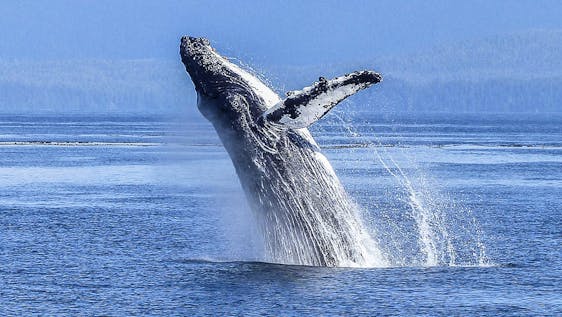Coral Reef Restoration Volunteer
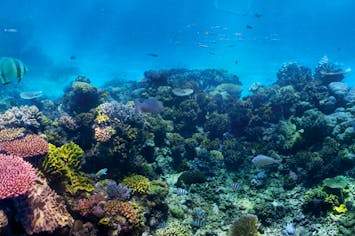
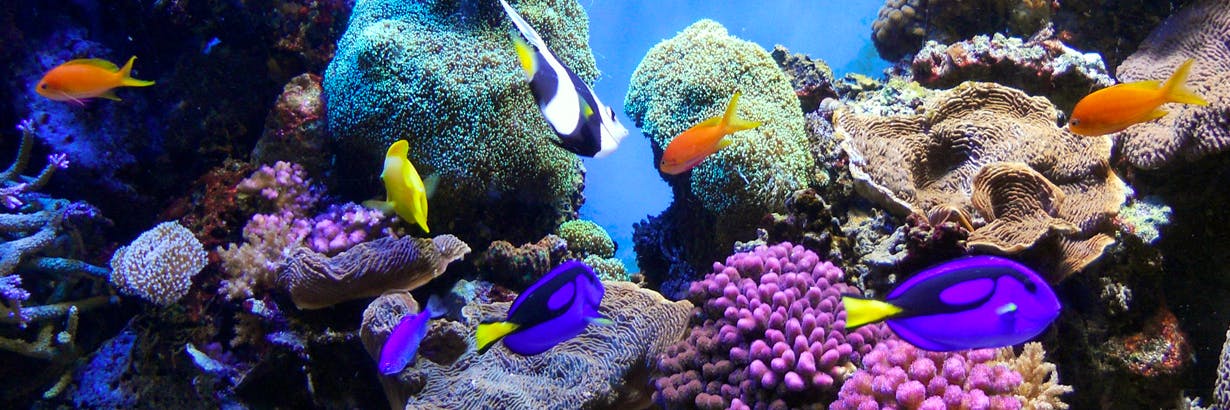
Coral Reef Conservation & Restoration
From the beautiful island Hawaii to Australia and even Norway, coral reefs can be found all over the world. They are some of the most diverse ecosystems in the world, housing tens of thousands of marine species. And even though the total area of the world's coral reefs amounts to less than a quarter of 1% of the entire marine environment, coral reefs are home to 25% of all marine life on the planet. In addition, they protect coastlines from storms and are dream destinations to dive in, which makes them valuable to both life on land and in the water.
There is, however, a dark spot in this colorful world: Roughly one-quarter of the coral reefs worldwide are already considered damaged beyond repair, with another two-thirds under serious threat. And what makes it even worse is considering that coral reefs have survived tens of thousands of years before humanity decided to take over. If they were to die out, this could mean several species of fish and marine life dying out as well. Furthermore, it would destroy the ocean’s natural balance.
In order to prevent this damage to continue, you now have the opportunity to become a coral reef conservation volunteer. With your help, marine conservation organizations can do their part to stop the destruction of coral reefs around the globe. We will give you all the information you need about the threats coral reefs are facing, where volunteers can support and dive at marine conservation projects with coral reefs, and what your volunteer tasks will look like.
🐚 Coral Reef Conservation Status 2025
Did you know that the Great Barrier Reef is the largest living thing on our planet? It’s so large that it can be seen from space! Reefs are naturally formed by corals, which are small animals known as polyps. The polyps are like a tin can open at just one end: the open end has a mouth surrounded by a ring of tentacles. These tentacles have stinging cells that allow the coral polyp to capture small organisms that swim too close. Each individual coral polyp is typically very small - less than 1,5 cm (½ inch) in diameter. But because corals are colonial, the size of a colony can be much larger which is how the formation of a coral reef comes to be. Just imagine the amazing experience of a dive in this extraordinary world!
According to the IUCN list corals, and thus coral reefs, are in severe decline. Due to many man-made threats such as global warming and the water temperature rising every day, the world’s coral reefs are facing irreparable destruction such as coral bleaching or overfishing.
This is one of the reasons why 2018 has been declared as the International Year of the Reef. Coral reef conservation is part of the larger field of marine conservation, and it is just as important. And the best part is that you don’t have to be a scientist to have a positive impact on coral reefs! As a marine conservation volunteer, you can be active in the important fight against the destruction of the world’s coral reefs!
🐟 Why Are Coral Reefs Endangered?
As a prospective coral reef conservation volunteer, this is something that you need to have a good understanding about. Unfortunately, coral reefs across the globe find themselves faced with a multitude of threats. The following factors certainly play a big part in putting the survival of coral reefs worldwide at risk:
- Pollution that originates on land
- Physical damage or destruction
- Climate change/ global warming
- Illegal or unsustainable fishing (Overfishing)
- Careless tourism
- Sedimentation
- Coral harvesting or mining
🐠 What Are the Greatest Threats to Coral Reefs?
The greatest threats to reefs are climate change and the resulting rising water temperatures. When the water temperature rises, the corals lose algae which produce the food that corals need - a condition known as coral bleaching. This condition can kill whole coral colonies or weaken them to a point where they’re vulnerable to other threats. The outcome of this is acidic seawater, which not only harms the existing corals and marine life but also prevents new corals from building up. To quote WWF: “Such bleaching events may be the final nail in the coffin for already stressed coral reefs and reef ecosystems.”
A multidisciplinary approach to coral reef conservation is very much required in order to not just address the above-mentioned threats, but also prevent new threats from emerging in the first place. Due to unsustainable fishing, many fish and marine life species, which are important both economically and ecologically, can be lost altogether. The ripple effect of these losses might be hard to estimate but is sure to be felt by the local coral reefs. Coral reef ecosystems only work as long as all of the important fish species survive.
Once these fish become extinct, this has a life-threatening impact on coral reefs as well. As a logical consequence, the death of coral reefs causes even more marine life species to die. As was already mentioned, climate change is also having a huge impact on coral reefs and could lead to disastrous consequences. This is true for the following reasons:
- An increase in sea-surface temperatures
- Rising sea levels
- Changed precipitation patterns
- Changed currents
- Changed storm intensity
🐡 How Do We Protect Coral Reefs?
Coral reefs all over the world are having a hard time adjusting to all of the above-mentioned changes at once. Sadly, this means that more disease incidents and coral bleaching are the natural consequence of these phenomena. Moreover, increased CO2 in the atmosphere is responsible for a changed chemistry of the ocean, which is a further threat to corals and can harm them in the long run. In turn, this also shows why complex and multifaceted coral reef conservation efforts are needed in order to save our remaining coral reefs and their marine life.
As pretty much all of the threats are man-made, the conservation efforts us humans have to take are quite simple:
- controlled fishing for a healthy fish community
- creating marine protected areas
- coral reef restoration
- keeping our oceans clean
Given that some types of corals only grow a little over 0.1 inches per year, it is hard to undo the damages once they have been done. Hence, being proactive and doing what you can as a coral reef conservation volunteer now is all the more important. If you want your children to be able to take a PADI scuba diving class and enjoy the stunning beauty of the ocean and its coral reefs in the future, the time to sign up for this line of volunteering work is now.
🌍 Best Places for Coral Reef Conservation
Your volunteering work at a coral reef conservation project could take you to many corners of this earth. From the coast of Africa to Australia and the tropical island Hawaii, there are coral reefs that are in danger of being completely destroyed all over the world. Perhaps you would like to know that there are about 800 different species of corals that build reefs, which have been identified to this day. Most of these corals are found both in the Pacific and Indian Ocean, which is why most coral reef conservation volunteers find themselves traveling to these regions.
If your goal as a coral reef conservation volunteer is to protect coral diversity, these are some of the countries that you will definitely want to travel to.
🐚 How Can I Help Protect Coral Reefs?
There are many different ways to protect coral reefs and every project supports these marine conservation efforts differently. Depending on what you are looking for, this introduction to the tasks and benefits of coral reef volunteers will be helpful for you to find the right program. Whether you want to dive as much as possible or educate locals and tourists on ways to protect coral reefs and the importance of their conservation, there will be a volunteering program that matches your expectations and skill set.
🤿 What Will I Do as a Coral Reef Conservation Volunteer?
Before you embark on your divers journey as a coral reef conservation volunteer, we would like to tell you more about the tasks that you can expect to be completed in this line of voluntary work. Going on a scuba dive with tourists in order to raise funds for your coral reef conservation program or educate the local population as well as tourists and fellow divers on what they can do to help to protect coral reef diversity - you are not going to get bored anytime soon. Other tasks you’ll encounter are:
- Coral, lagoon, and fish monitoring
- Diving to collect data
- Mangrove and beach cleaning
- Data input and other office tasks
Be it indoors or outdoors, your time at a coral reef conservation project will be incredibly rewarding. After all, being a coral reef conservation volunteer will probably teach you some of the following skills:
- Develop greater marine-based knowledge
- Cultivate a better understanding of the marine ecosystem
- Learn new research methods
- Improve your social skills
If you greatly enjoy scuba diving, this kind of voluntary work will certainly be right up your street. You need not be an expert diver already in order to be able to volunteer in this field. Instead, you dive on site in order to get your PADI diving license before and during volunteering. Just allow plenty of time before you leave to complete the required coursework and test. Ready - set - dive!
🎁 5 Benefits of Working as a Coral Reef Conservation Volunteer
A Once in a Lifetime Experience
To dive into the colorful world of a healthy coral reef is a once-in-a-lifetime experience that you will never forget. That alone is reason enough for many people to pack their bags and volunteer to protect coral reefs around the world.
Great on Your Resume
If you are interested in studying biology, a volunteer program working for coral reef conservation efforts will be a great fit. You will gain hands-on experience and get a first insight into the daily work of trained researchers and biologists, which will certainly come in handy at a later point in your career. Being able to list this kind of work experience on your CV is another bonus, even if you are not planning on pursuing a career in this field. It shows that you are capable of physically hard and hands-on work and that you are motivated to volunteer your free-time to a meaningful cause.
Expand Your Horizons
Depending on where you choose to volunteer, you might get to refine your language skills whilst working on site as the main language spoken is English. Immersing yourself in a foreign culture and living abroad will definitely make you grow as a person and give you a different perspective.
Have Fun!
And let’s not forget that the time you spend volunteering at a coral reef conservation project will also be incredibly fun! You will get to enjoy all the perks of living so close to the ocean, like diving and seeing marine life from up close, island hoping, enjoying the beach every day and facing new challenges.
Meet Other Like-minded People
The best part is that you will be surrounded by like-minded volunteers that share your passion for marine conservation. After working and living together for a while, these people might even become your close friends!
If you think that joining a coral reef conservation project as a volunteer is just what you were looking for, then go ahead and get started right now! We would love to help you find the right project for you!
EVALUATED NE
DEFICIENT DD
CONCERN LC
THREATENED NT
ENDANGERED CR
IN THE WILD EW
 Activities
Activities
 Waste Reduction
Waste Reduction
 Diving
Diving
 Diving certificate
Diving certificate
 Vegan
Vegan
 Ocean Cleaning
Ocean Cleaning
 Americas
Americas
 Central America
Central America
 Shark Conservation
Shark Conservation
 PADI Divemaster
PADI Divemaster
 Environment
Environment
 Marine Conservation
Marine Conservation
 Whale Shark
Whale Shark
 Belize
Belize
 Animal
Animal
 Marine Life
Marine Life
 Ray Conservation
Ray Conservation
 Hotspots
Hotspots
 Sea Turtle Conservation
Sea Turtle Conservation
 Plastic Reduction
Plastic Reduction
 Volleyball
Volleyball
 Beach Cleaning
Beach Cleaning
 Green Sea Turtle
Green Sea Turtle
 Premium
Premium
 Asia
Asia
 South East Asia
South East Asia
 Africa
Africa
 Eastern Africa
Eastern Africa
 Madagascar
Madagascar
 Nosy Komba
Nosy Komba
 Indonesia
Indonesia
 Manta Ray
Manta Ray
 Raja Ampat
Raja Ampat
 Plant Conservation
Plant Conservation
 Philippines
Philippines
 Snorkeling
Snorkeling
 Manatee Conservation
Manatee Conservation
 Bali
Bali
 Hawksbill Turtle
Hawksbill Turtle
 Panama
Panama
 Oceania
Oceania
 Leatherback Turtle
Leatherback Turtle
 Great Barrier Reef
Great Barrier Reef
 Australia
Australia
 Queensland
Queensland
 Cairns
Cairns
 Australia and New Zealand
Australia and New Zealand
 Dolphin Conservation
Dolphin Conservation
 Bottlenose Dolphin
Bottlenose Dolphin
 Seychelles
Seychelles
 Whitetip Reef Shark
Whitetip Reef Shark
 Whale Conservation
Whale Conservation
 Humpback Whale
Humpback Whale
 Thailand
Thailand
 Koh Tao
Koh Tao
 Mozambique
Mozambique
 Loggerhead Turtle
Loggerhead Turtle
 Yoga
Yoga
 Leopard Shark
Leopard Shark
 Costa Rica
Costa Rica
 Maldives
Maldives
 Southern Asia
Southern Asia
 Fiji
Fiji
 Melanesia
Melanesia
 Caribbean
Caribbean
 Grenada
Grenada
 Gili Islands
Gili Islands
 Southern Europe
Southern Europe
 Split
Split
 Europe
Europe
 Croatia
Croatia
 Common Dolphin
Common Dolphin
 Cambodia
Cambodia
 Conservation Work
Conservation Work
 Mexico
Mexico
 Sperm Whale
Sperm Whale
 Blacktip Reef Shark
Blacktip Reef Shark
 South Africa
South Africa
 Southern Africa
Southern Africa
 Great White Shark
Great White Shark
